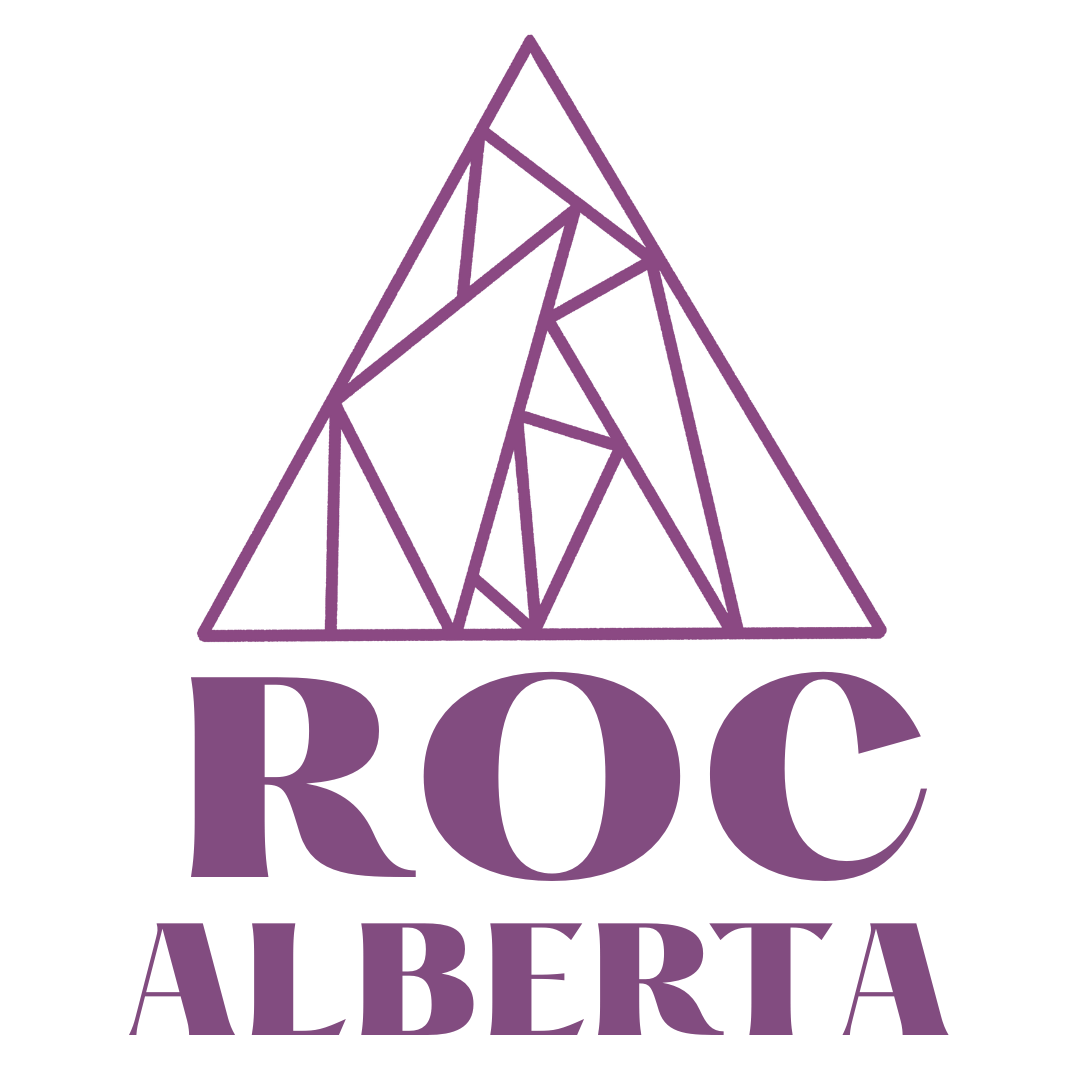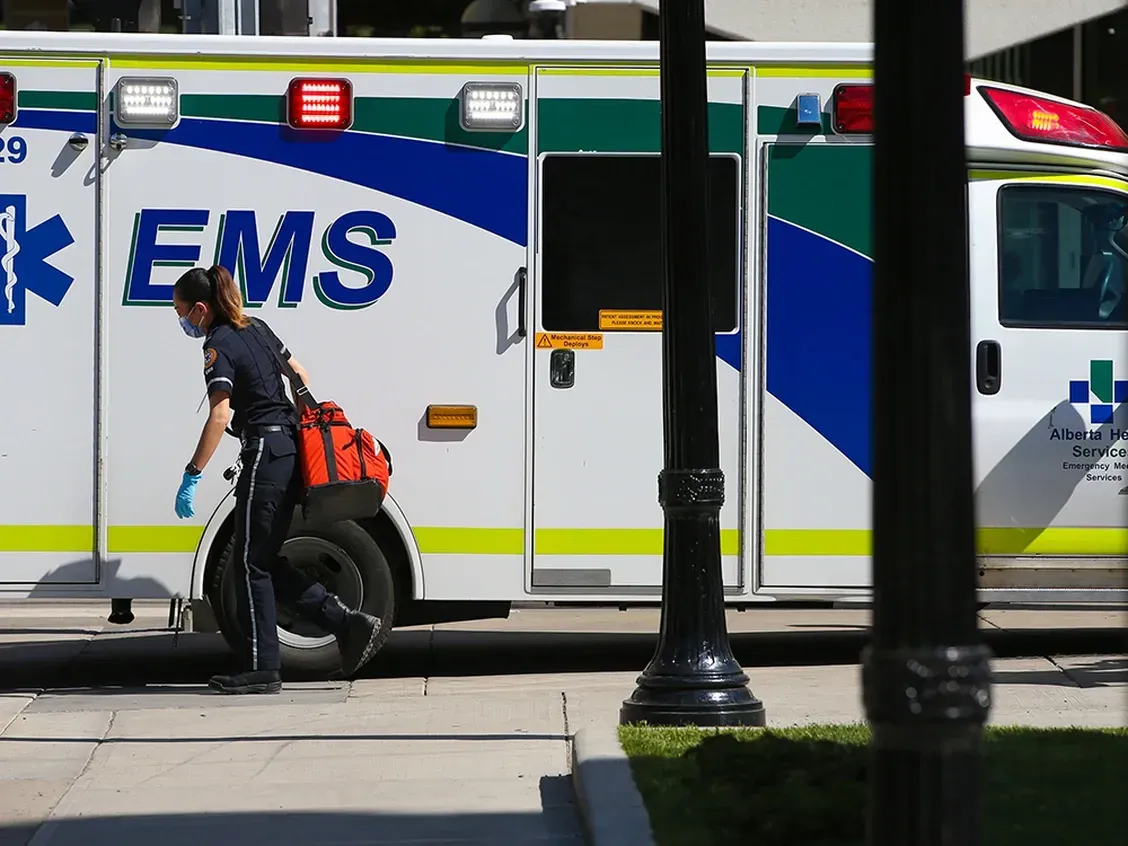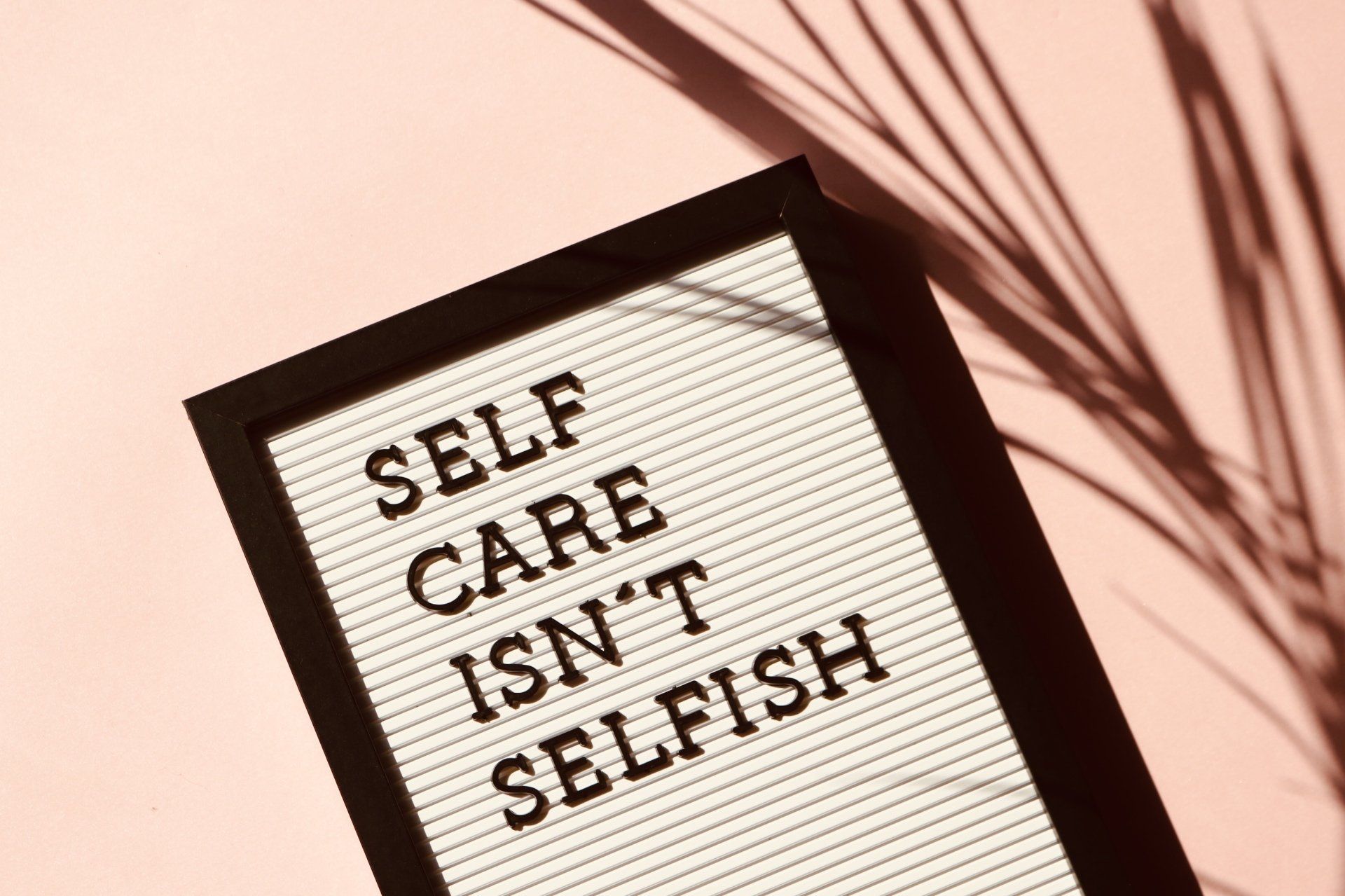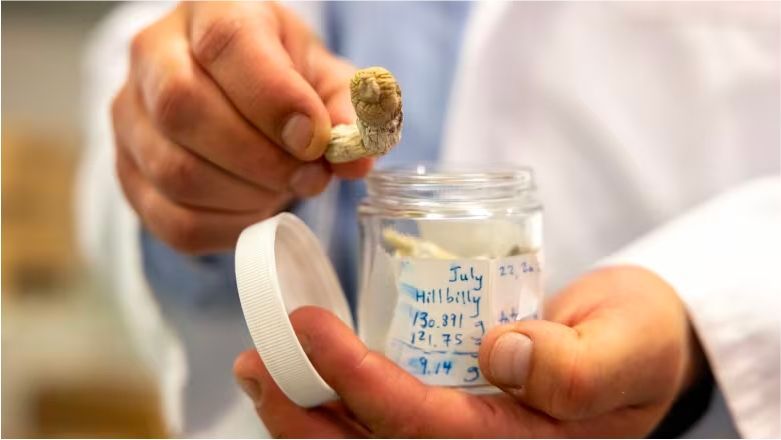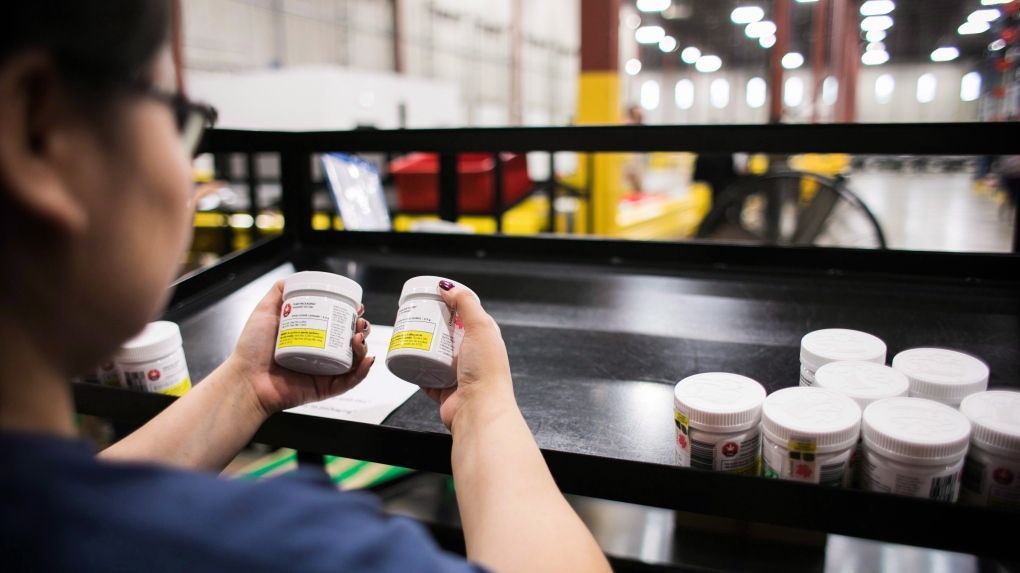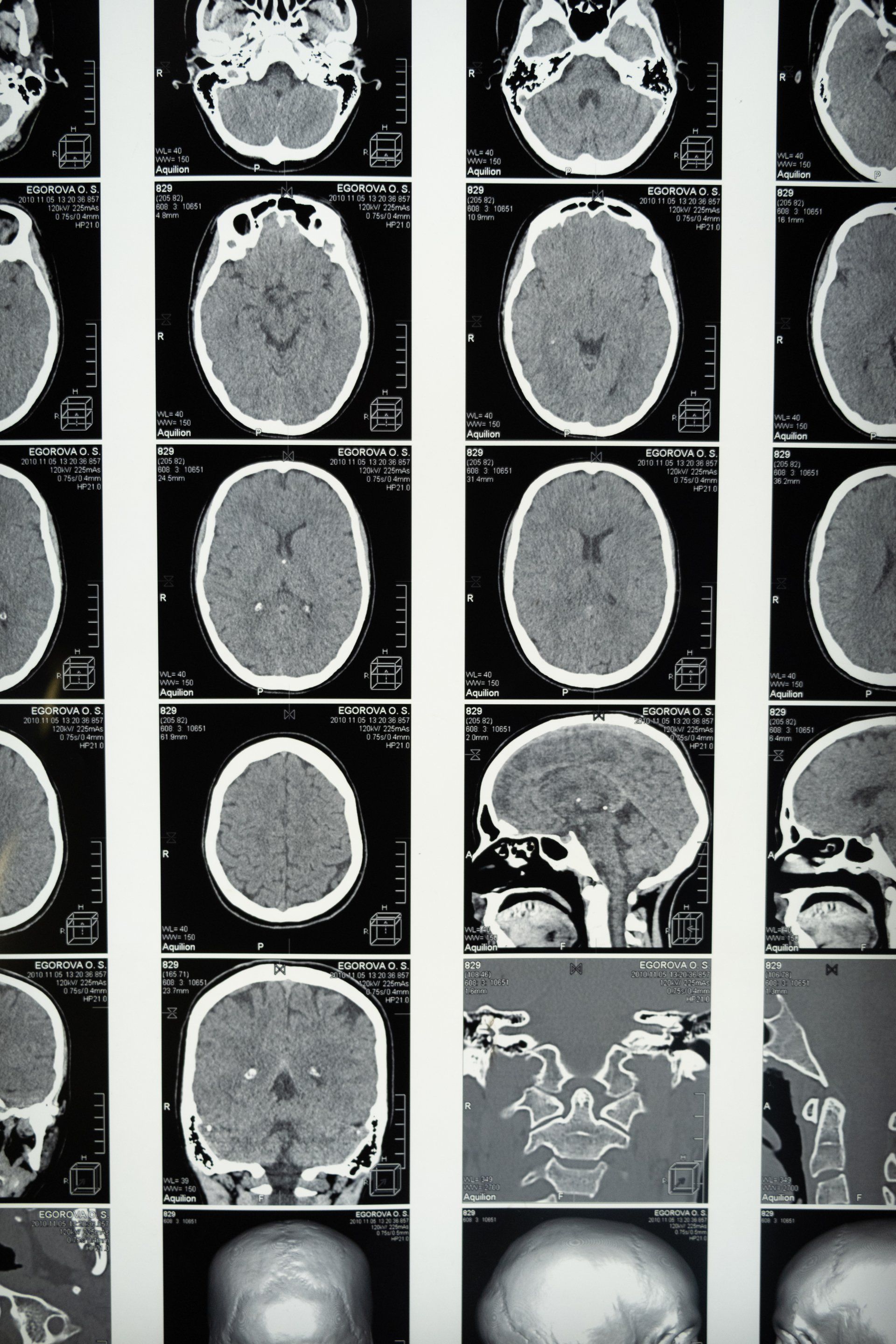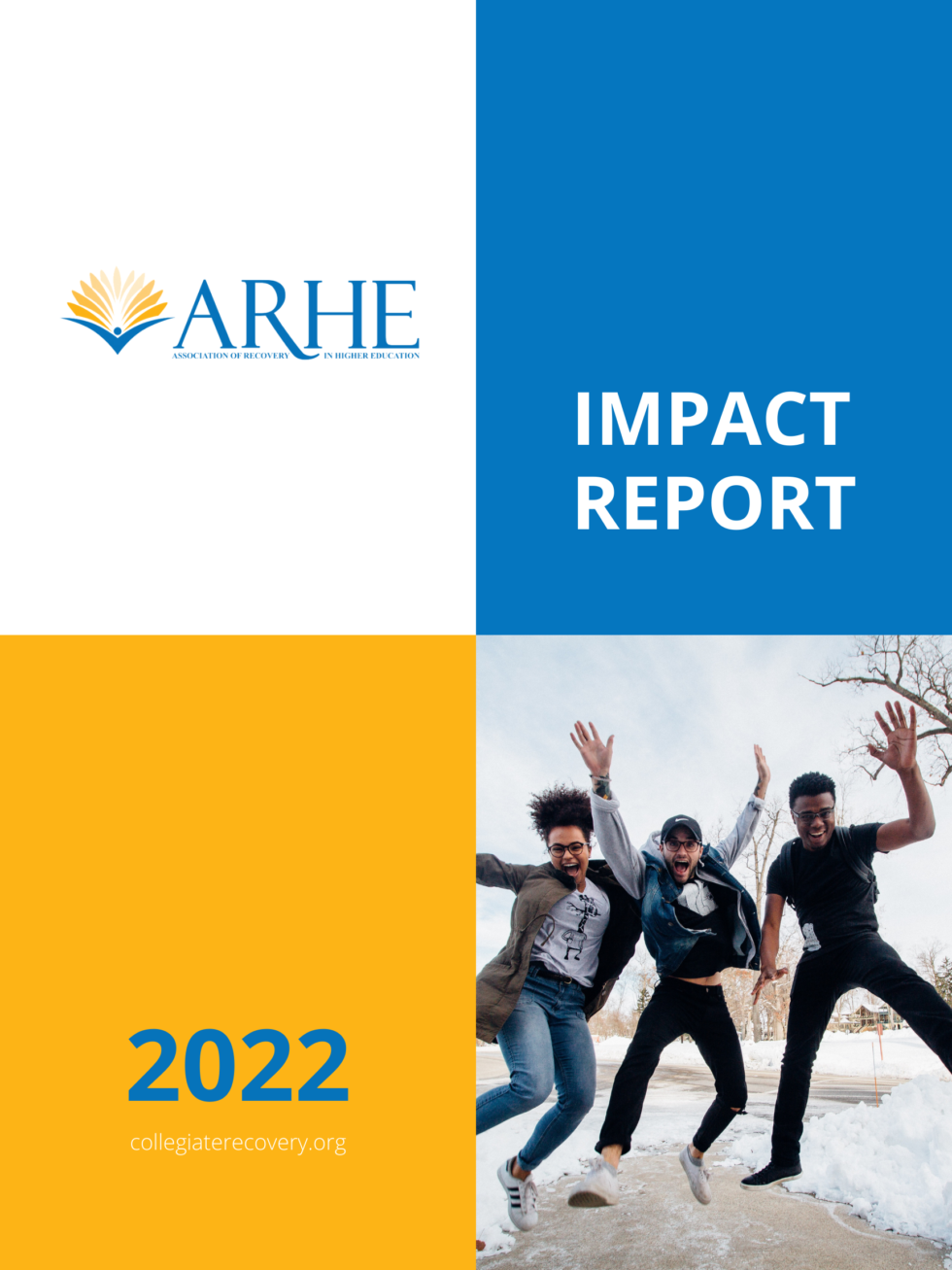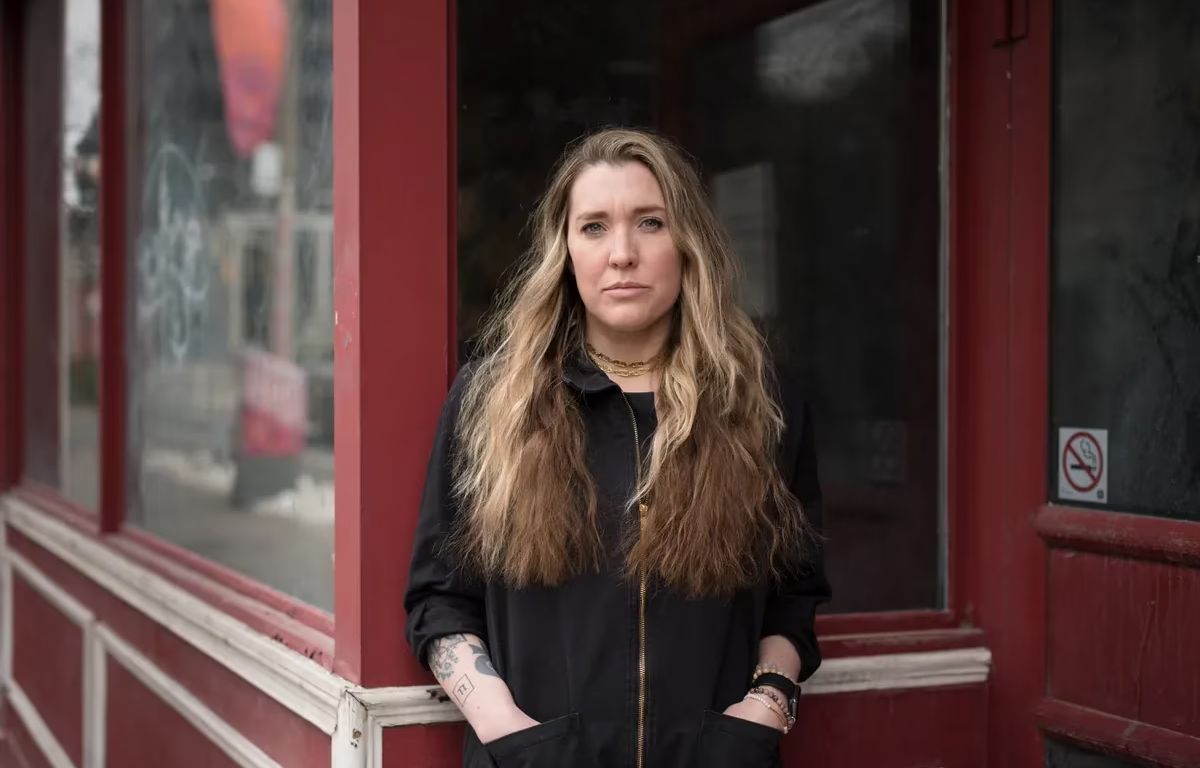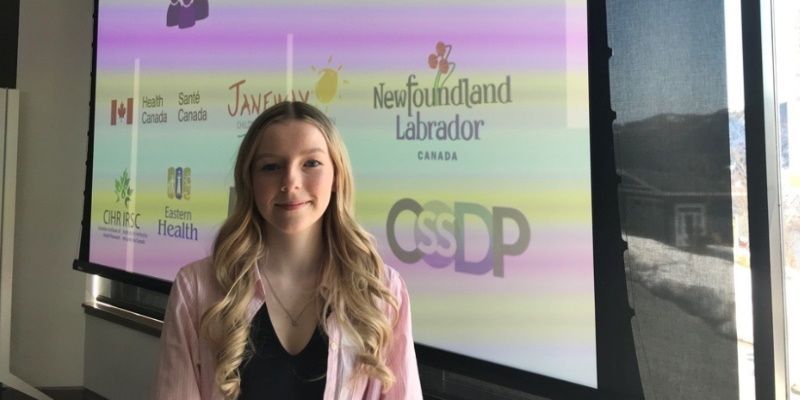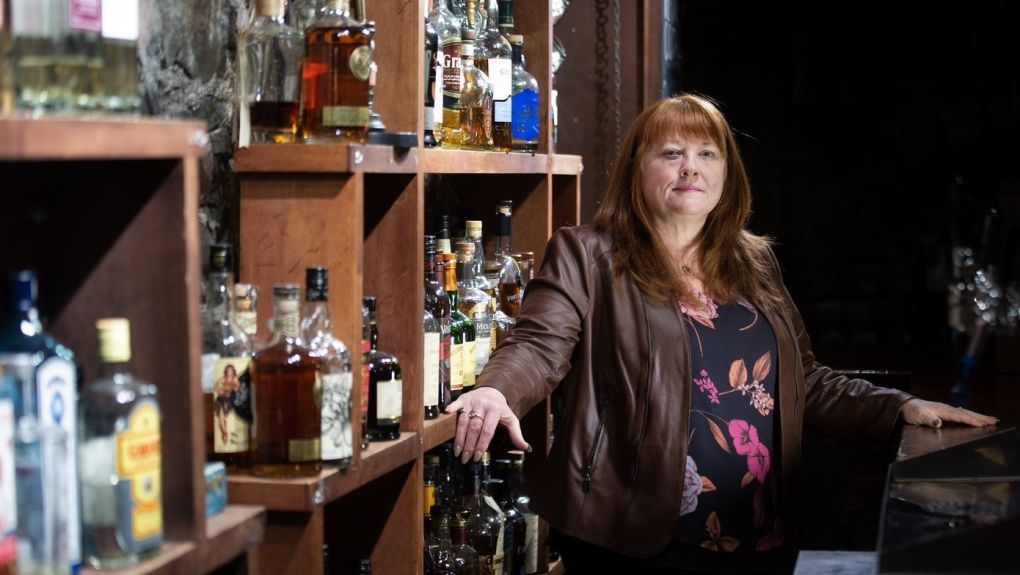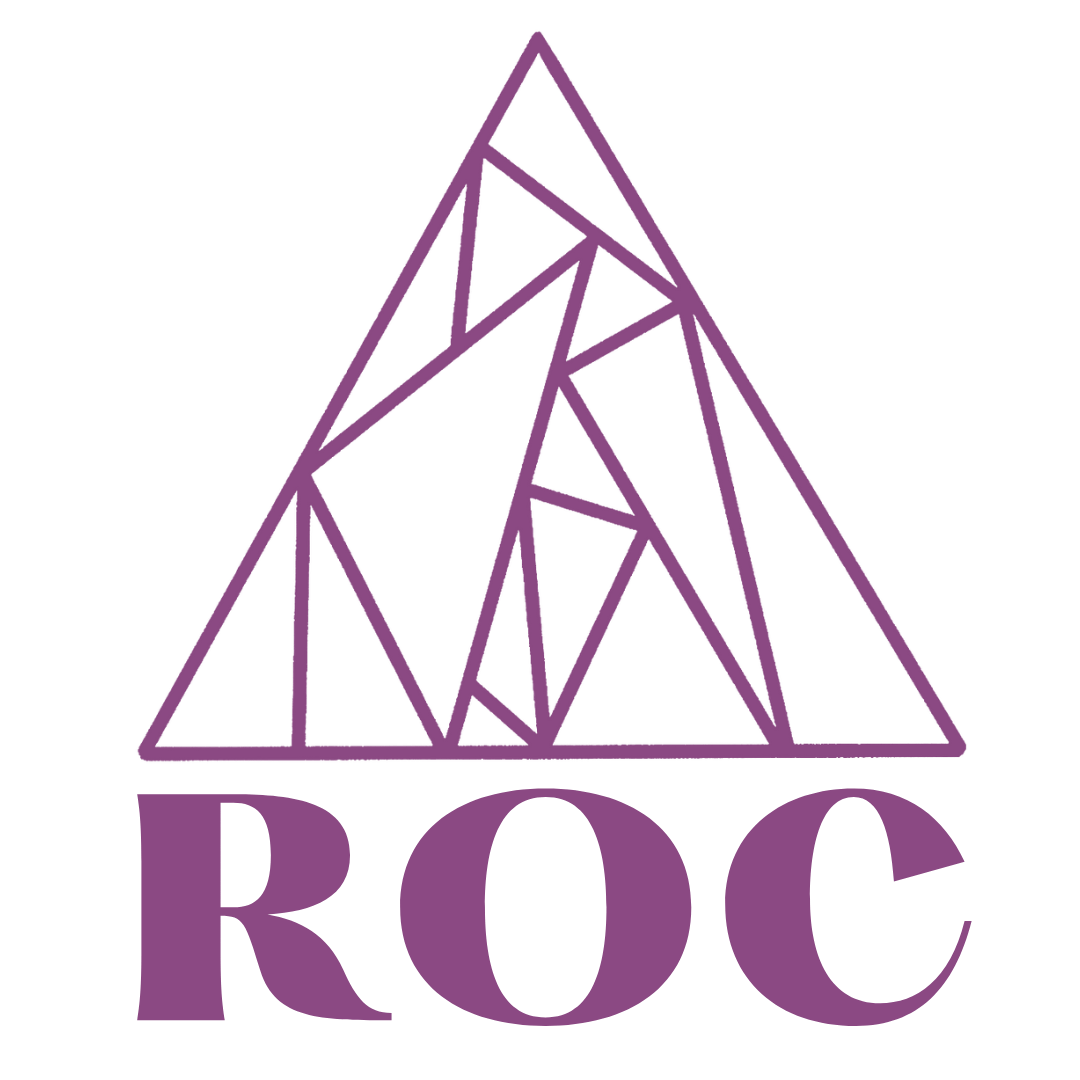In the News
ROC Alberta In the News
University of Calgary opens 'recovery-friendly' space on campus
Students, staff and faculty members of the University of Calgary struggling with substance abuse are encouraged to visit a recovery-friendly space on campus.

Launch of UCalgary's Recovery Community Hub
Mornings with Sue & Andy / Podcast
It’s a first in Alberta - an on-campus substance-free, recovery-friendly drop-in space has opened at the University of Calgary. What impact will it have on our community? We get details from Victoria Burns - Associate Professor, Faculty of Social Work at the University of Calgary, as well as Founder & Director, UCalgary Recovery Community & Recovery on Campus Alberta.

Newly opened drop-in and substance-free space a safe haven
1st on-campus recovery-friendly dedicated space in Alberta opens at UCalgary for students, faculty and staff
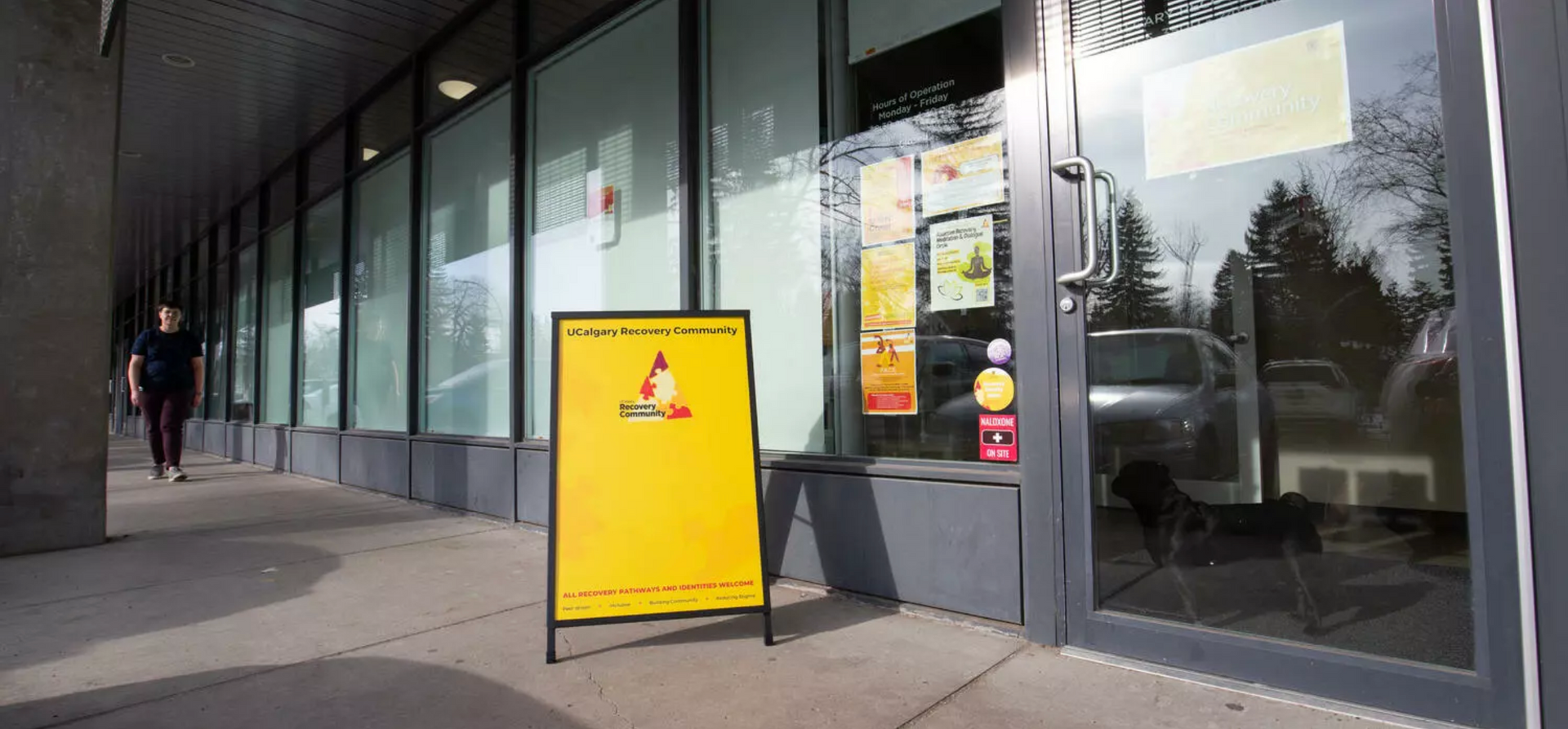
University of Calgary opens Alberta's first on-campus addiction recovery space
Hub offers access to social workers, hosts substance-free events
The University of Calgary celebrated the grand opening of the UCalgary Recovery Hub, Alberta's first on-campus drop-in recovery space, at an event on Wednesday.
Led by the UCalgary Recovery Community (UCRC), the drop-in space is designed for students, faculty and staff seeking addiction support.

Vama Saini, February 2, 2024
UCRC and Student Residence Services collaborate for substance-free housing
UCRC and Student Residence Services come together to create a space for students to experience substance free living on campus.
"The University of Calgary is taking a step towards providing a supportive and inclusive environment for students by introducing substance-free housing on campus. The initiative, led by the UCalgary Recovery Community (UCRC) — a collegiate recovery program — and Student Residence Services, aims to create a safe space for students who are in recovery or choose to abstain from substance use."

Scott Strasser, Nov 01, 2023
University of Calgary Recovery Centre piloting substance-free residence for students
The one-year pilot started in September at Cascade Hall, where four sober students are rooming together in the same suite.
A substance-free housing pilot project at one of the University of Calgary’s residence buildings is underway this year, catering to students who are recovering from substance-use disorders or seeking a sober lifestyle.
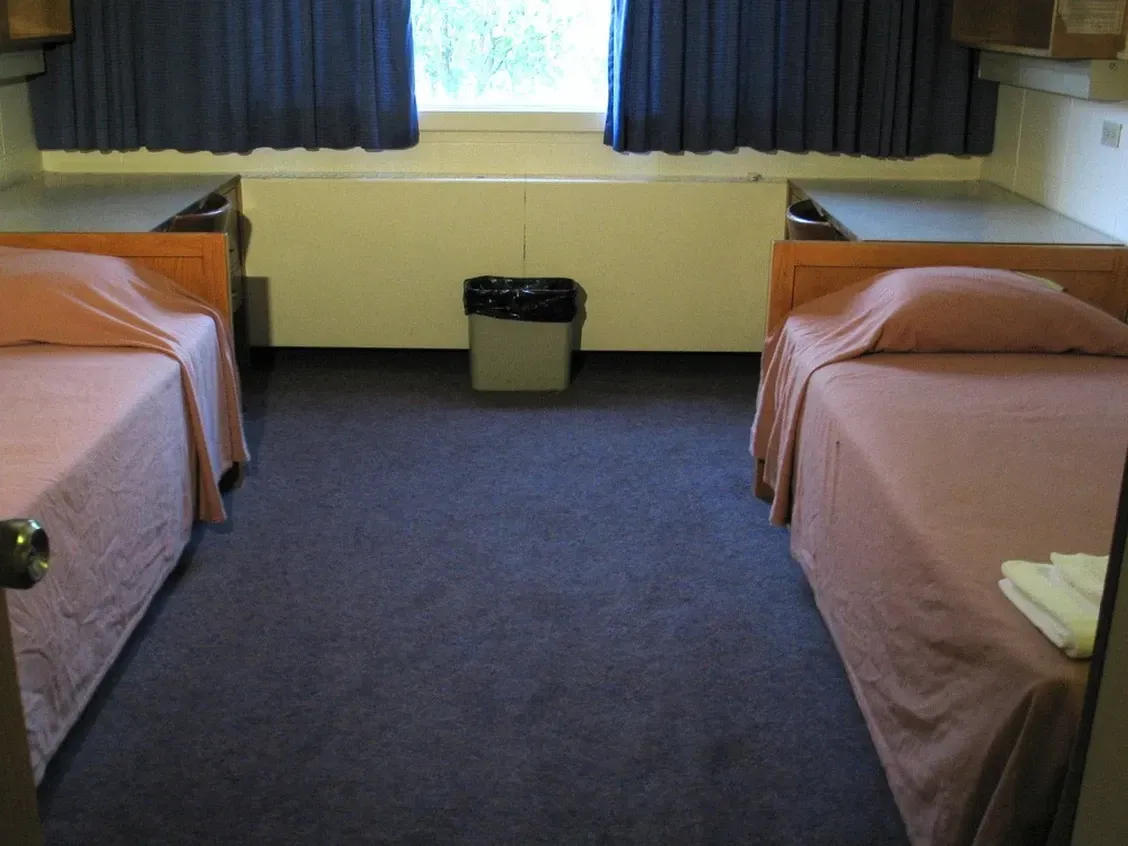
Michael Franklin, Nov 01, 2023
The University of Calgary has launched an initiative to help students who are managing substance abuse.
The school says four students will be living on their own in the campus' Cascade Hall, where they can develop a supportive community, free from the triggers and temptation of drugs and alcohol.

Dr. Victoria Burns, January 19, 2023
First collegiate recovery program in Canada aims to raise funds during Giving Day
With “recovery is radical self-love” stickers, training, substance-free housing, peer support, mutual-aid meetings and social events, the UCalgary Recovery Community (UCRC) is making waves on campus.
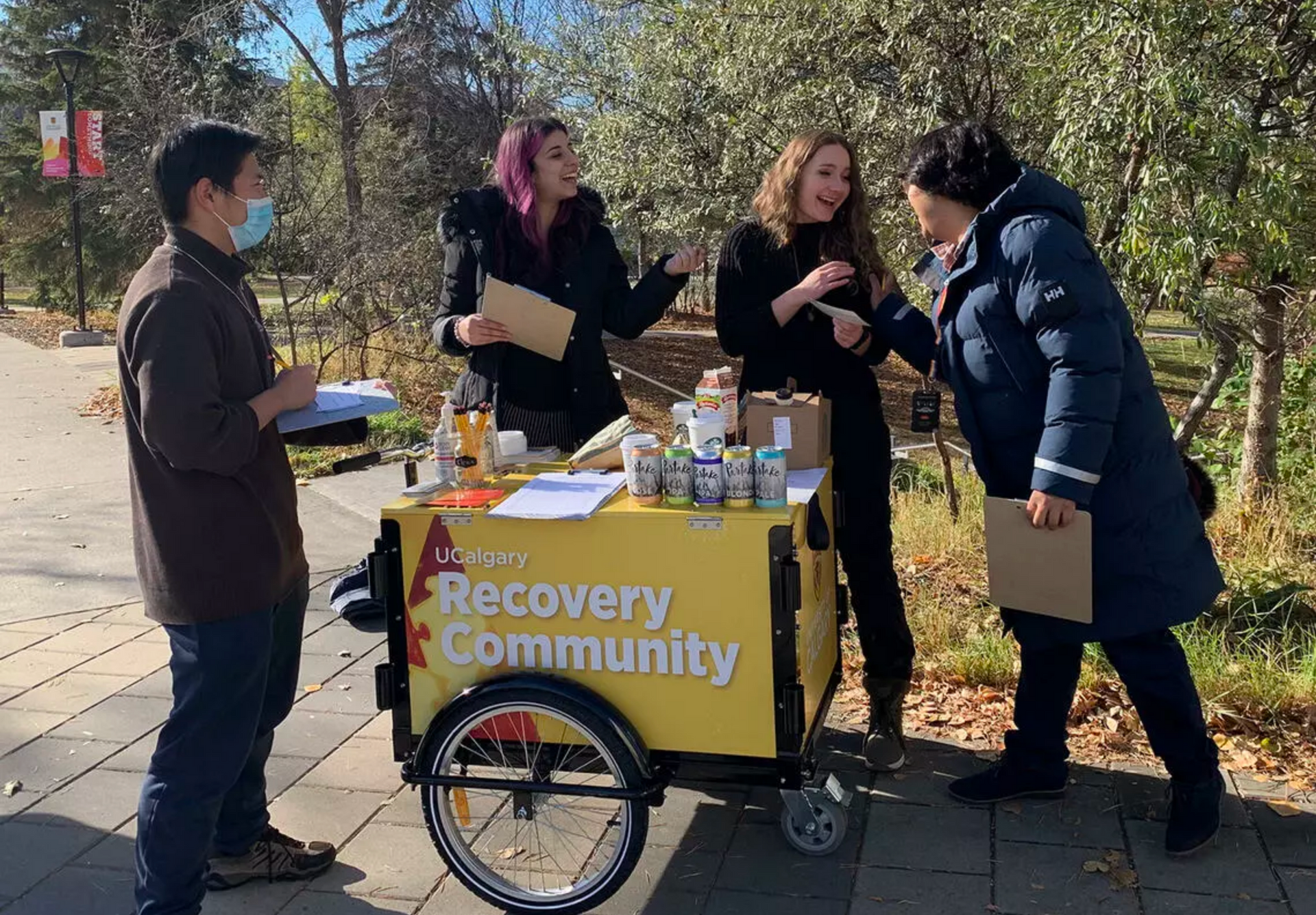
Roni Sherby, October 30, 2023
Partnership between University of Calgary Recovery Community and Student Residence Services reflects priorities of Campus Mental Health Strategy
Recent Canadian Campus Wellbeing data shows that 11 per cent of UCalgary students identify as being in recovery from substance use. In response, the University of Calgary Recovery Community (UCRC), in partnership with Student Residence Services, is piloting substance-free housing during the 2023-2024 academic year.

January 19, 2023 - Campus Mental Health Strategy Staff
"Dr. Victoria Burns, PhD. RSW, Associate Professor and UCalgary Recovery Community (UCRC) Director has found the stigma of recovery can be more severe than the stigma of active addiction. Her research on addiction and recovery in post-secondary institutions led to co-creating UCRC and Recovery on Campus Alberta-so those facing addiction and navigating recovery can feel less alone."
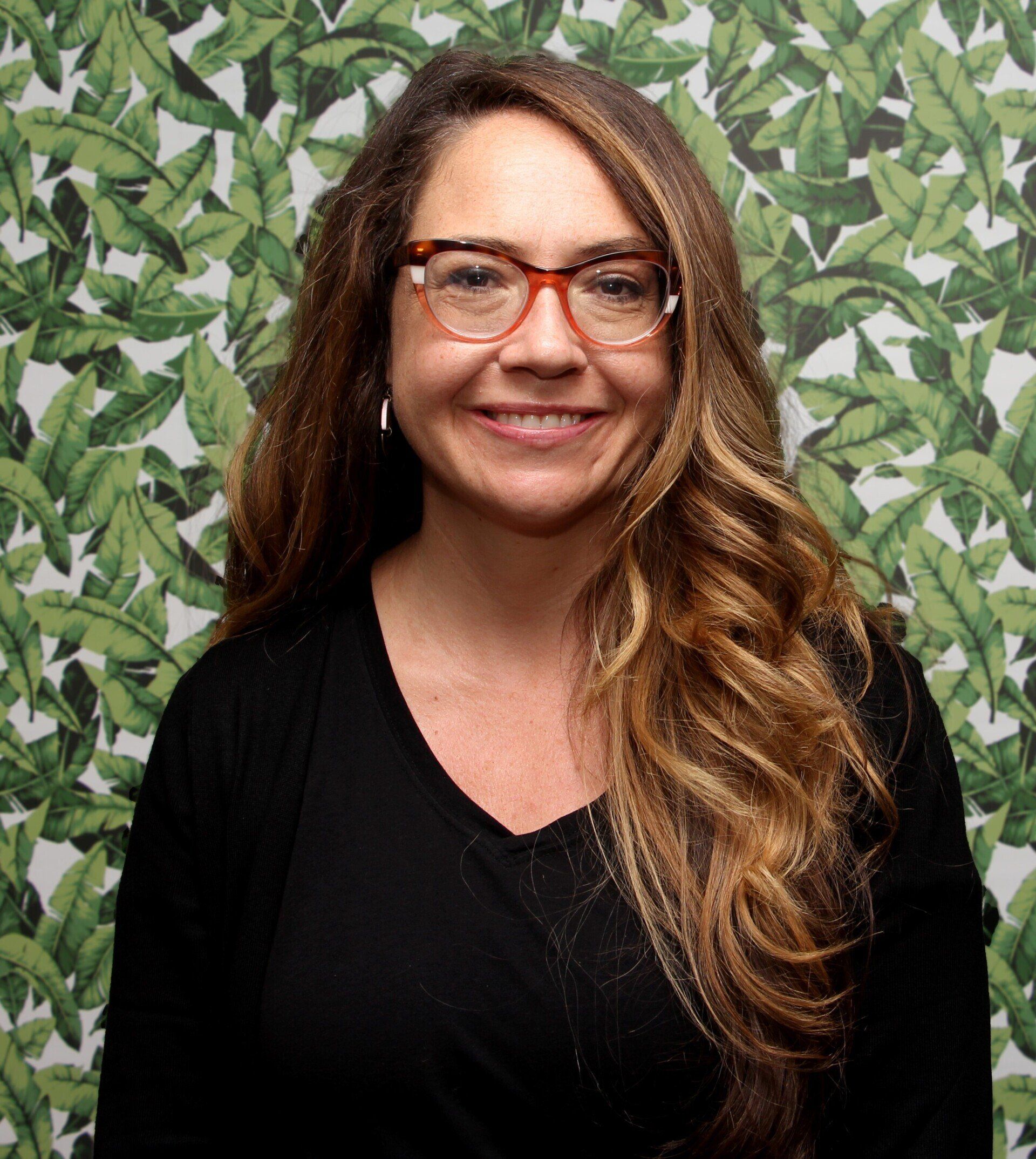
January 05, 2023 - CityNEWS - Logan Stein
The new year has many looking to make a lifestyle change, but what steps do you need to make to make sure you remain on track?
Logan Stein reports.

Oct. 19, 2022 - Calgary Herald - Olivia Condon
With the help of a $500,000 provincial grant, 26 public post-secondary schools across the province will have a chance to offer better supports for students, staff and faculty in recovery as part of a University of Calgary-based initiative.
"Burns said her own experience with addiction and recovery illustrated the lack of resources available to struggling students on campuses and inspired a push for further outreach and to expand teaching to the entire school community."
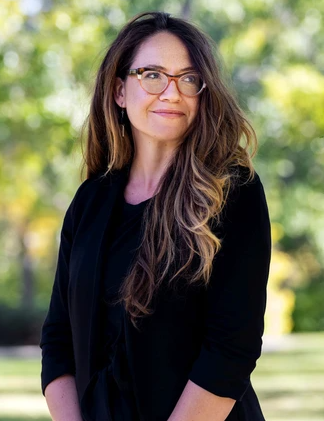
Oct. 5, 2022 - UCalgary - Sasha Lavoie
UCalgary to lead development of provincial post-secondary Recovery on Campus program
$500,000 Alberta government grant will grow campus recovery model province-wide
"Everyone deserves the opportunity to pursue recovery. That's the belief and focus of a new Alberta government-funded and University of Calgary-driven initiative that aims to support individuals with addiction and mental health challenges through a recovery-oriented system of care."
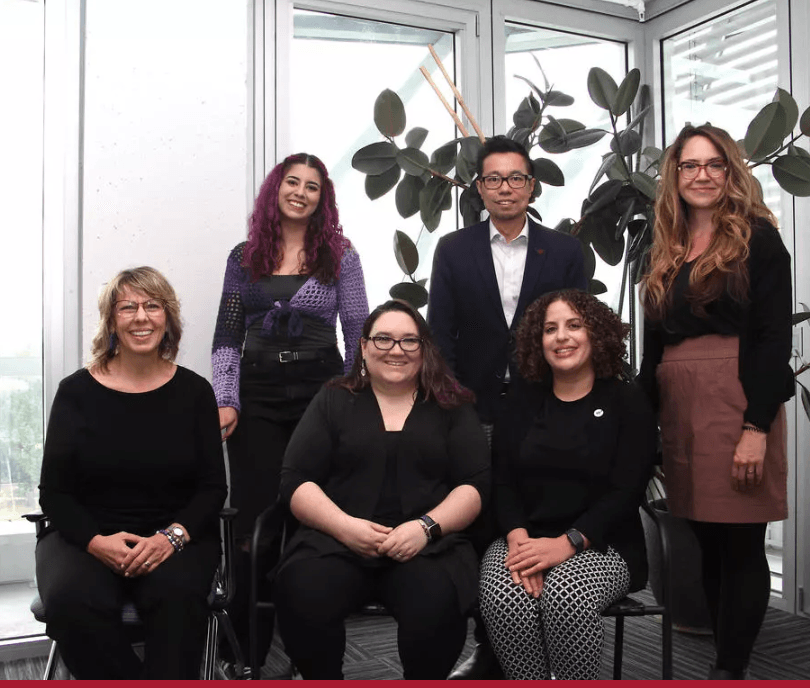
Sept. 14, 2021 - U Calgary - Faculty of Social Work
"Victoria Burns draws on personal experience in providing a safe, inclusive space for students, faculty and staff in addictions recovery"
"Multiple pathways approach focuses on addiction as a community"
"If we want to shift the culture and reduce the stigma, we have to involve all campus members."

Jan. 29, 2019 - UCalgary - Lauren Phillips
"Personal experience inspires UCalgary prof to step up against addiction stigma"
"In long-term recovery from addiction, Burns draws upon her own lived experience and her research dedicated to addiction stigma to highlight the problematic culture of silence surrounding addictions, especially among faculty members."

In the News
What Happens After Dry January?
Experts weigh in on whether 30 days is enough to see the benefits of kicking alcohol

Windsor’s recovery college a local mental health asset
Demand for the Wellness and Recovery College program at the Canadian Mental Health Association (CMHA) Windsor-Essex County branch continues to grow as a new semester began this week.
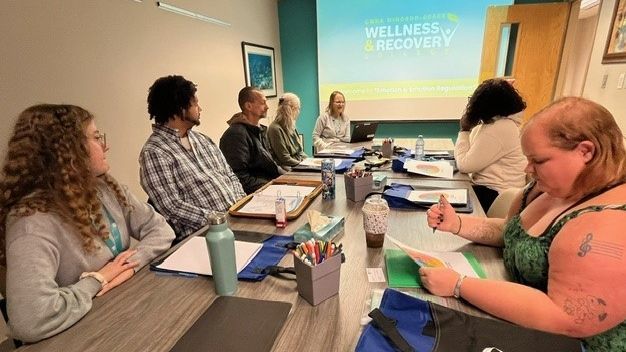
How Alberta's booze industry is pivoting to meet alcohol-free demands
World Health Organization says there’s an expanding market but effects unknown

Canadian doctors to screen for risky drinking as polls suggest it's adults who have a problem
Polls suggest young people, aged 18 to 34, are drinking less than that cohort did two generations ago

What are the Dry January rules? What to know if you're swearing off alcohol in 2024.
The first day of Dry January is nearing for heaps of Americans who will choose to cut alcohol out of their diets during the first full month of 2024.

Dry January tips, health benefits and terms to know — whether you're a gray-area drinker or just sober curious
The arrival of the new year means many people are gearing up for Dry January, the increasingly popular challenge of quitting alcohol for the month.

Addiction warning signs during the holidays
During the holiday season, addiction experts warn families to watch for signs of addiction in their loved ones.
“The stages of addiction look different from person to person and how long they’ve been drinking, using, etc.,”

Can alcohol be part of a healthy holiday season?
The following guest column is by Dr. Lisa Simon, an Associate Medical Officer of Health at the Simcoe Muskoka District Health Unit.
The holidays are often a time of gatherings and celebration. Alcohol may be a part of these festivities.

Federal addictions minister says department taking a deeper look into safer supply
The probe will include examination of accounts of diversion of prescribed opioids, says Ya’ara Saks,
Federal minister of Mental Health and Addictions

Addictions awareness week: Inspiration, innovation, inclusion
"I feel fortunate to have been involved in a number of initiatives over the years that exemplify this theme in the qathet region." ~ Maggie Hathaway, Lift Community Services

Exhibition aims to promote deeper understanding of addictions
MEDICINE HAT — A new interactive exhibit opening this week aims to tell the real-life stories of people impacted by addiction.

New program teaches local workers how to save a colleague from overdose
As more workplaces are compelled to have naloxone kits on hand, Ontario government is providing local employees with free training on how to spot signs of an opioid overdose
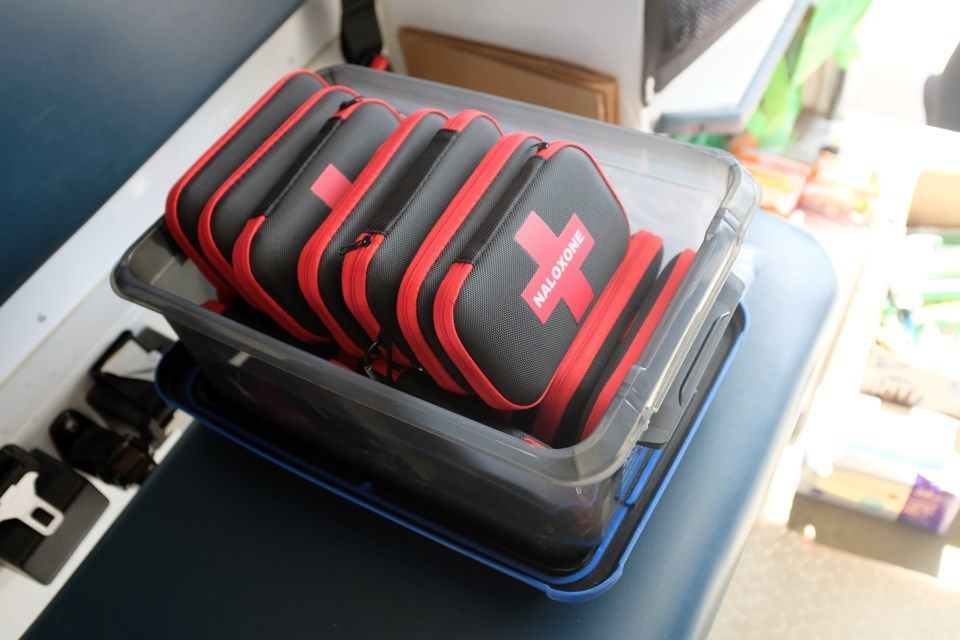
Worst addiction society suffers is alcohol: qathet counsellor
“Alcohol is so intertwined in our social culture in North America, removing oneself from those activities can feel isolating.” ~ Paul McIsaac

Booze-free Kelowna bar aims to wet whistles for people choosing sober lifestyle
What is a bar without booze?
It’s a question that some Kelowna, B.C., business owners intend to answer in a couple of weeks when they open up the Okanagan’s first alcohol-free bar.
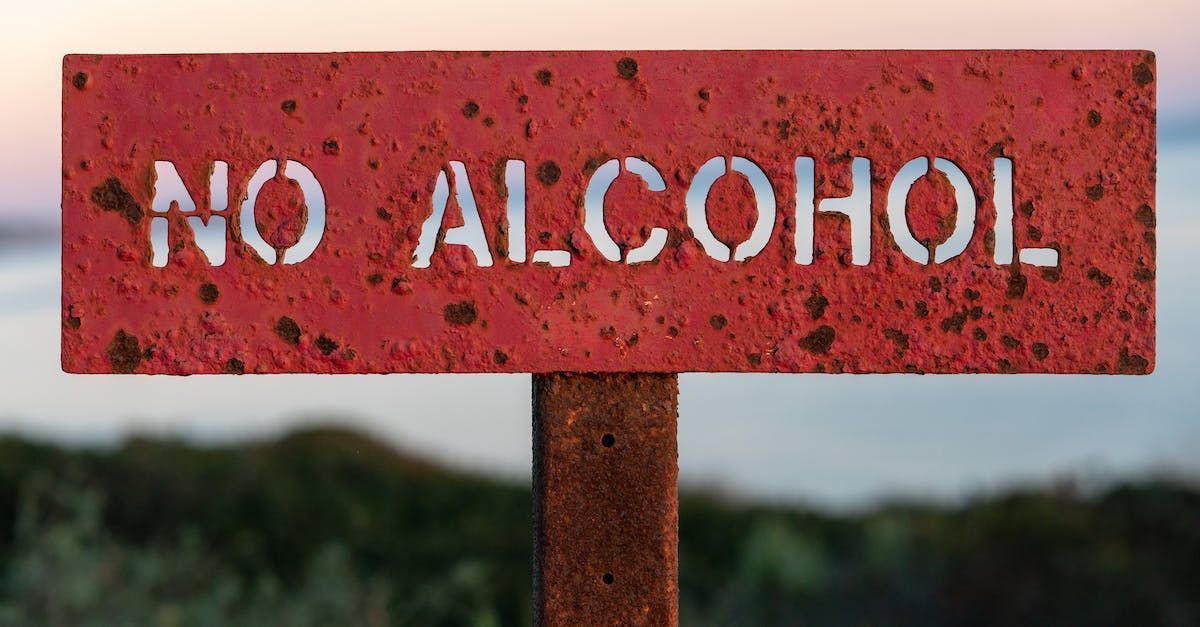
Major drink brands launch more non-alcoholic options as ‘sober curious’ trend grows
As interest in non-alcoholic drinks grows, major alcohol brands are making moves with sober versions of well-known products like Guinness and Tanqueray gin.
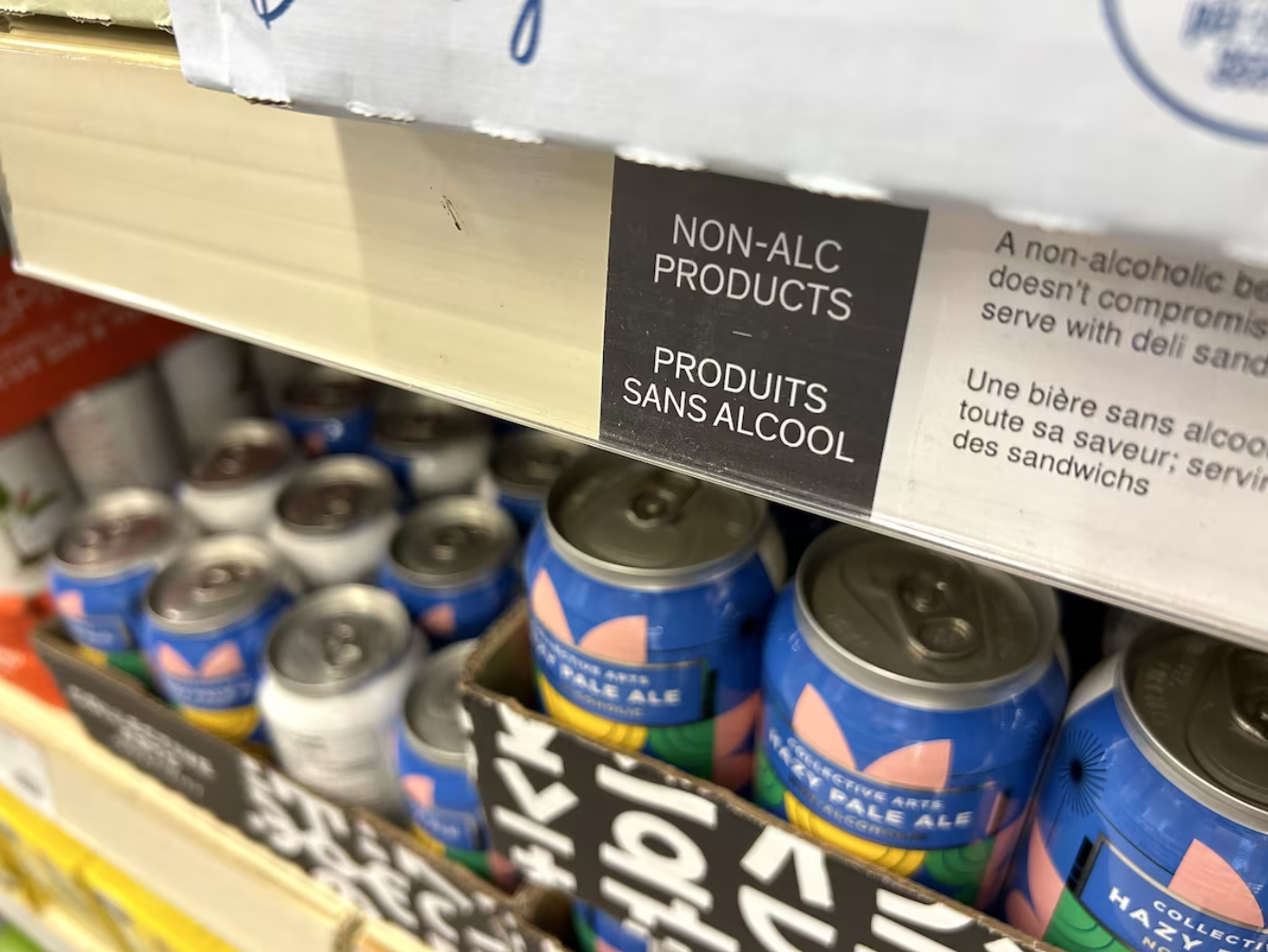
Natalie MacLean talks ‘wine mom’ culture, sexist marketing and how to cut back without going sober
Wine critic Natalie MacLean woke up one day and realized she was part of the problem.
After years of making her over-drinking habits fodder for her writing, the bestselling author and award-winning journalist was forced to take a look in the mirror and come to terms with her participation in “wine mom” culture.

New Study Shows Universities’ Alcohol Policies Lacking
A new study out of St.FX University shows that Atlantic Canadian universities are falling short when it comes to campus alcohol policies.
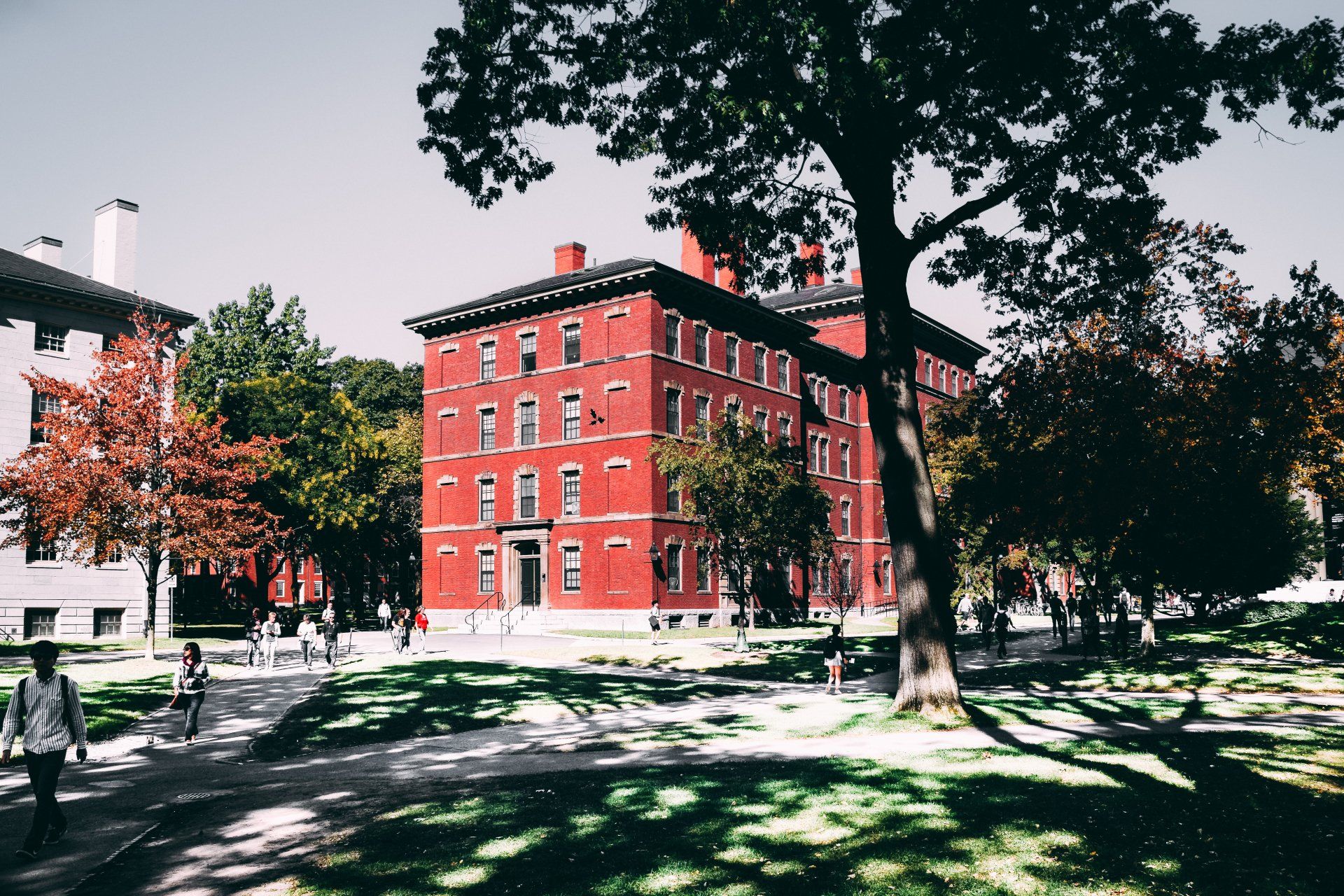
The sprint to sobriety: Is athletic culture going alcohol-free?
When Franz Xaver Kugler opened a little tavern in his small town of Deisenhofen, in southern Germany, in the early 20th century, he probably did not expect his main clientele to be endurance athletes.

Ontario small businesses feel impact of mental health, addiction challenges: Report
While the worst of the COVID-19 pandemic may be behind us, experts say we continue to see a resulting mental health and addiction crises. A new report from the Ontario Chamber of Commerce highlights the impacts from these crises on small and medium sized businesses.

Making It Easier to Talk about Drinking Too Much
Stigma stops patients and doctors from discussing alcohol use disorder, say authors of a guide on how to change that.
Canada has a drinking problem.
The country is wealthy, has a culture of drinking, has easy access to alcohol and most people have to work less than 20 minutes to be able to afford a beer, said Jürgen Rehm, senior scientist in the Institute for Mental Health Policy Research at the Centre for Addiction and Mental Health.

The University of New Hampshire received $400,000 from the state to launch an alternative support group, benefiting as many as 100 students in the first year.
A 2021 National Survey on Drug Use and Health by the Substance Abuse and Mental Health Services Administration found 49 percent of college students aged 18 to 22 drank alcohol in the past month, and 27 percent of them participated in binge drinking during the same period. Among full-time college students, 13 percent have had alcohol use disorder, as well.

Grant will assist students who are impacted by substance use disorder
The CRP program is designed to enable recovery for students who are experiencing or believe they may have a substance use disorder, are curious about sobriety, or have someone in their lives who is struggling with these issues.
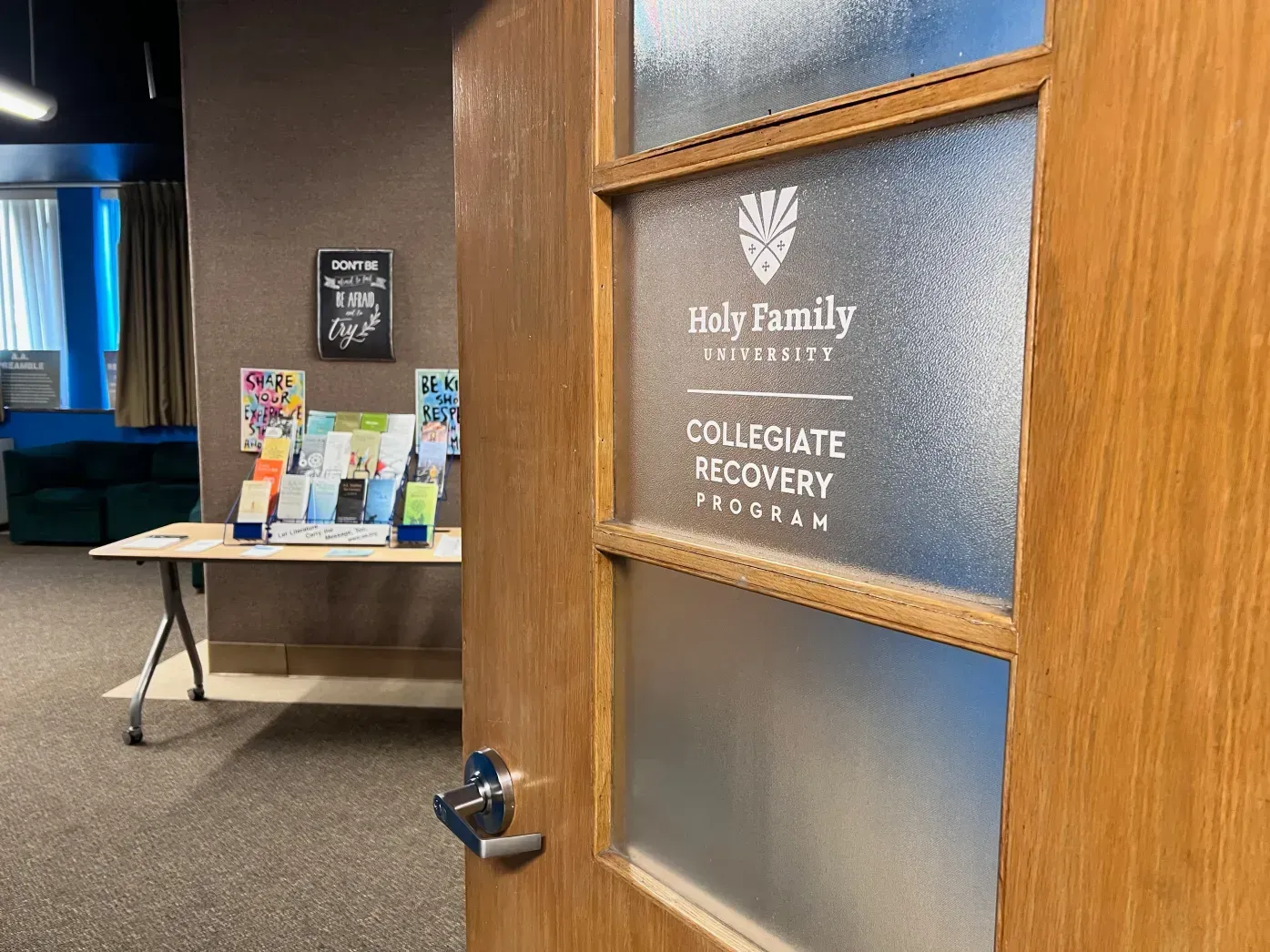
'Research shows that the best path to avoid addiction and the best path out of addiction is connection, and so we need to build those community connections and we also need to provide that one-site, coordinated access to services,' said Coun. Janet-Lynne Durnford

According to the University of Alabama’s Collegiate Recovery and Intervention Services, which helps students with substance abuse, consuming excess alcohol is how some cope with feelings of depression, anxiety, trauma or other life situations that might have caused a negative impact.

Every year, thousands of Canadians seek help for addiction. Which treatments work best?
Samantha Rundle, a recent PhD graduate from U of T’s department of psychology, is interested in the relationship between addiction and stigma. She is also interested in how stigma might act as a barrier to treatment for people and whether changing the way we talk about addiction can reduce it.

More than half of Canadians aged 15 and older drink more than recommended, new paper shows
The new findings also show that high-risk drinking often goes unrecognized and untreated, as does alcohol use disorder (AUD) — defined as ongoing use and difficulty controlling drinking, even in the face of consequences.

Nearly 67% of all college students bet on sports, according to the National Council on Problem Gambling. This figure doesn’t even include the percentage who bet on the lottery, card games or at casinos. If you choose to gamble*, here are some tips, strategies and resources that can help you avoid risky gambling habits and get help if needed.

A CTV News story discussing the warning signs to look out for in somebody struggling with addiction, and how can one approach the matter.

The personal documentary 'Attila' premiered on World Mental Health Day, October 10th. The film explores the life of Attila Csanyi, who died after struggling with schizophrenia and addiction.

Thirty Kennesaw State University students were celebrated Friday during the annual Collegiate Recovery Scholarship Breakfast, where about $40,000 in scholarships were presented to members of the Center for Young Adult Addiction and Recovery (CYAAR).

Since 1989, the month of September has been recognized as National Recovery Month. With the tagline, “Every Person, Every Family, Every Community,” the National Recovery Month organization raises awareness for the prevalence of addiction across the U.S. and how, in cities like Syracuse and beyond, recovery is possible.
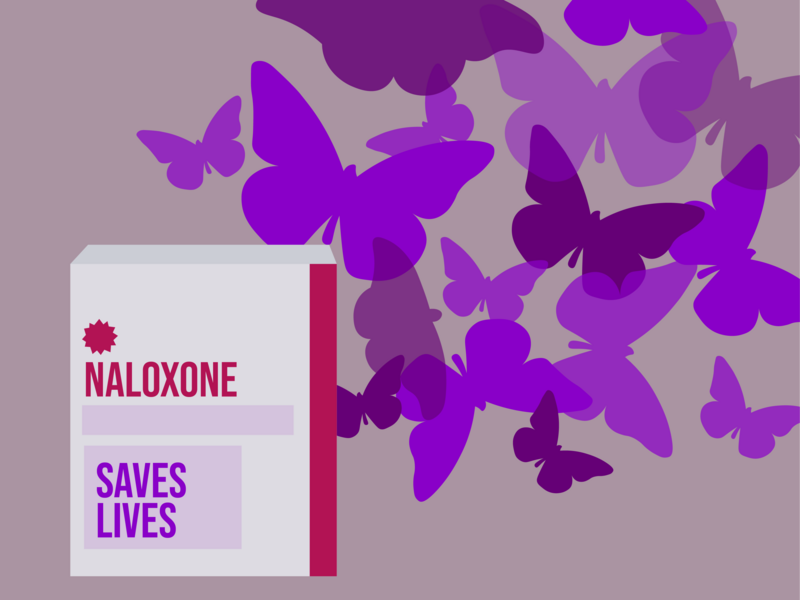
Ursinus recently became the first Certified Recovery Friendly Workplace that is a college campus in the United States. Katie Bean, Ursinus’s Director of Health Promotion, has been vocal about the benefits of our college being a Recovery Friendly Workplace; you may have seen updates about the college’s certification as a Recovery Friendly Workplace on the Ursinus Health Promotion Instagram.
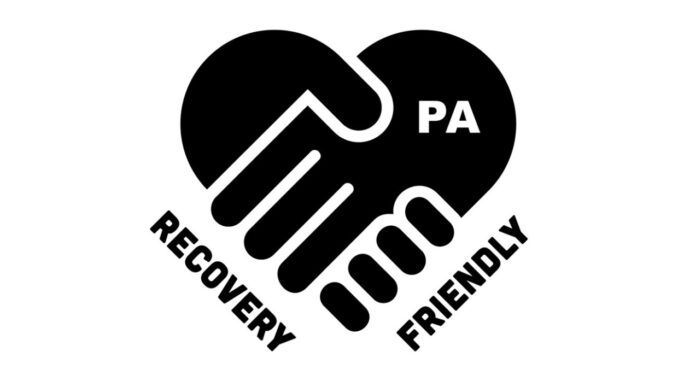
The brand new Lethbridge Recovery Community, a free-of-charge addiction treatment centre, opened Thursday on the east side of the city.

Backers of a London, Ont., program that provides a safe supply of opioids to prevent fatal drug overdoses are pointing to survey results from participants who report the approach is leading to better health outcomes.
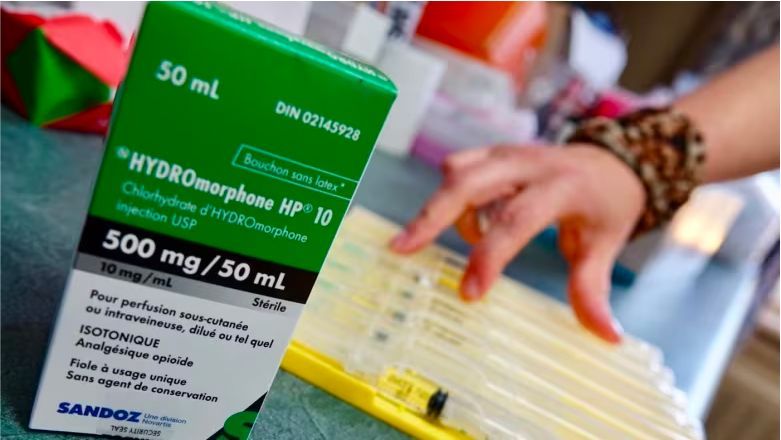
New, national curricula for opioid education has been launched to help physicians contend with Canada’s addiction crisis.
The Canada-wide, comprehensive, and competency-based curricula is designed for current and future physicians in pain management, opioid use disorder, and addiction medicine.

In the midst of BC’s ongoing, toxic drug crisis, a researcher at Vancouver Island University (VIU) is using an arts-based, community-engaged approach to help people “come together in new ways to imagine and create change.”
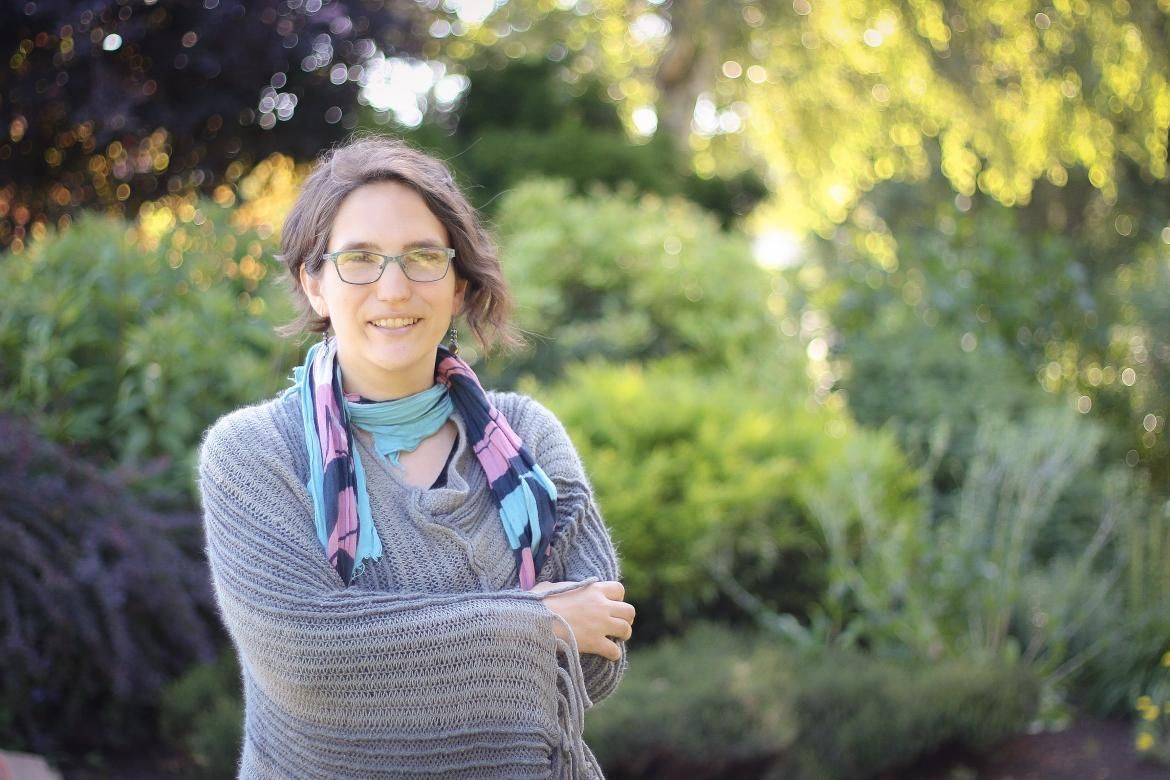
How a Collegiate Recovery Program in the University of Denver helped a mother deal with the loss of her son to substance use, and helped her find healing.

There's a strong drinking culture on college and university campuses right across the Maritimes and the return to school is often a boozy week and that can be dangerous, but there's a push to change the drinking culture.

Sep 10, 2023
The Washington State Health Care Authority funds the State of Washington Collegiate Recovery Support Initiative, housed at WSU. The initiative works with eight other colleges and universities, offering funding, training and resources to develop their own collegiate recovery program.

Sep 10, 2023
Hundreds gathered at The Forks Sunday to celebrate Recovery Day in Winnipeg, while also making a push for increased addictions and mental health resources ahead of the upcoming provincial election.

The University of Lynchburg will host “Voices of Recovery: A facilitated panel discussion on living and thriving in recovery from substance use disorder”.
The free, public event is held in conjunction with National Recovery Month and sponsored by the University’s Hornets in Recovery program, which launched in January with a $50,000 grant.

A new initiative is placing college graduates as college advisers in high schools across the state of Michigan, especially those located in underserved communities.

Aug 31, 2023
Those who have lost loved ones to a substance overdose will have the opportunity to gather on Thursday Aug. 31 to hang locks and share their stories to remember family members and friends.
Residents in Recovery is organizing the event to coincide with International Overdose Awareness Day.
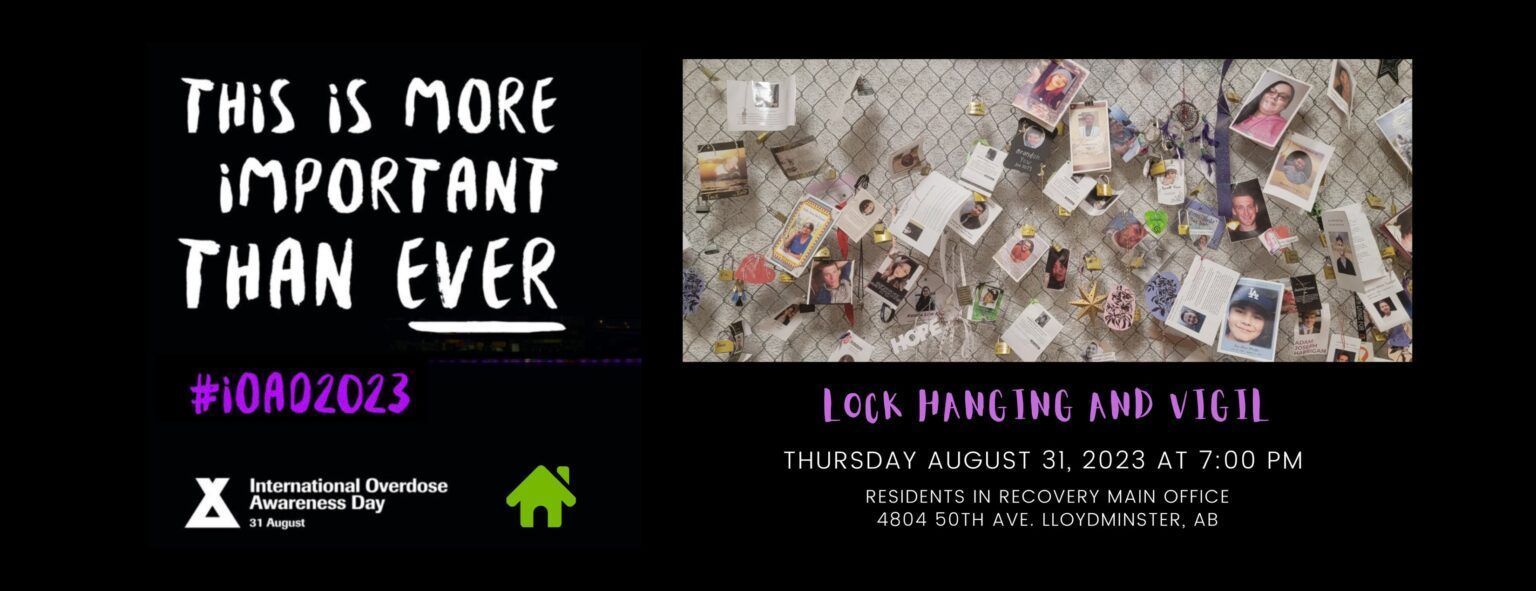
Aug 30, 2023
A new campaign from local community health organizations is asking local residents to see past substance use to the individual who is using, and to help to make Kingston a kinder place for people who are impacted by substance use.
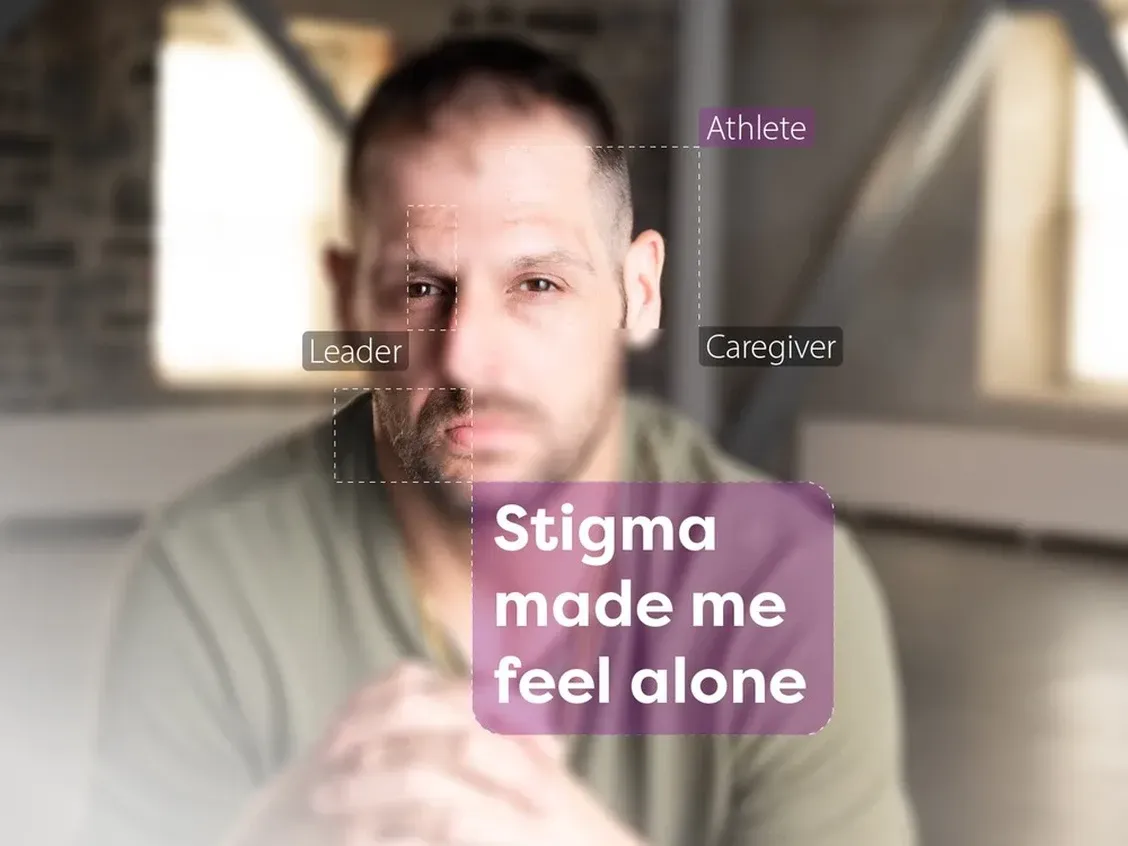
Aug 31, 2023
Families and communities around the world will pause today to remember lives lost due to overdose. On this International Overdose Awareness Day, we connect with one of the many organizations in our region working to reduce overdose deaths, and also bring harm-reduction to those at risk.

Aug 31, 2023
Thursday is a day to educate and remember those lost to drug overdoses as it marks International Overdose Awareness Day.
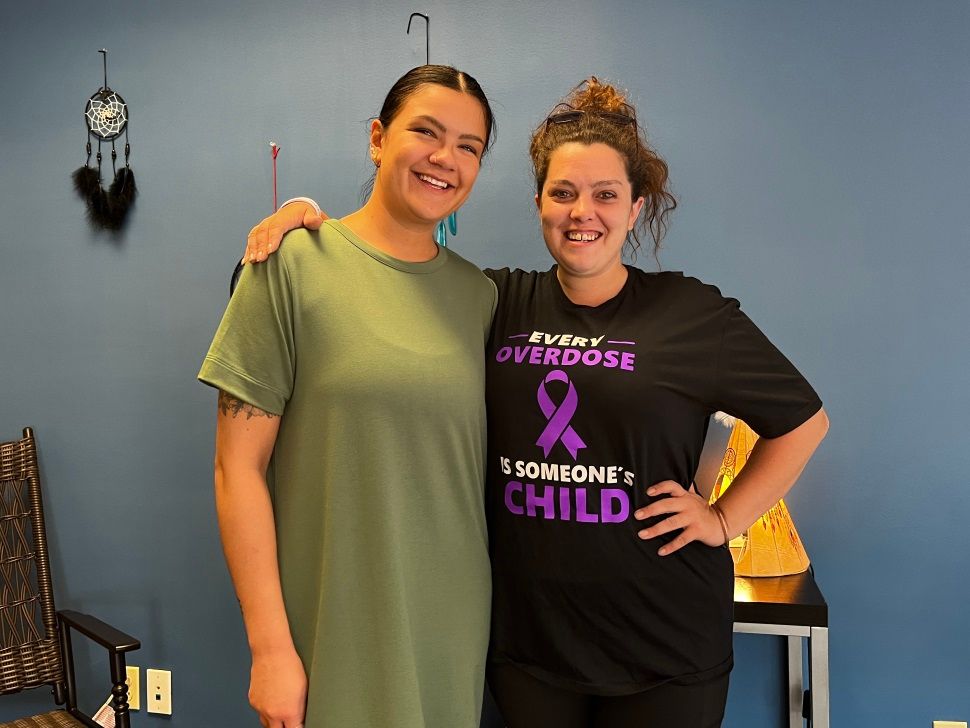
Based on student surveys, UVA received the No. 1 ranking for student health services. UVA's Student Health and Wellness offers many services to campus members, among them is
UVA’s Collegiate Recovery Program.

Ursinus College in Pennsylvania became the first institution certified as a recovery-friendly workplace for faculty and staff as well as students working to overcome substance abuse.

September is National Recovery Month, and one Big Rapids addiction recovery advocate discussed how the path to sobriety can be explored in West Michigan year-round.
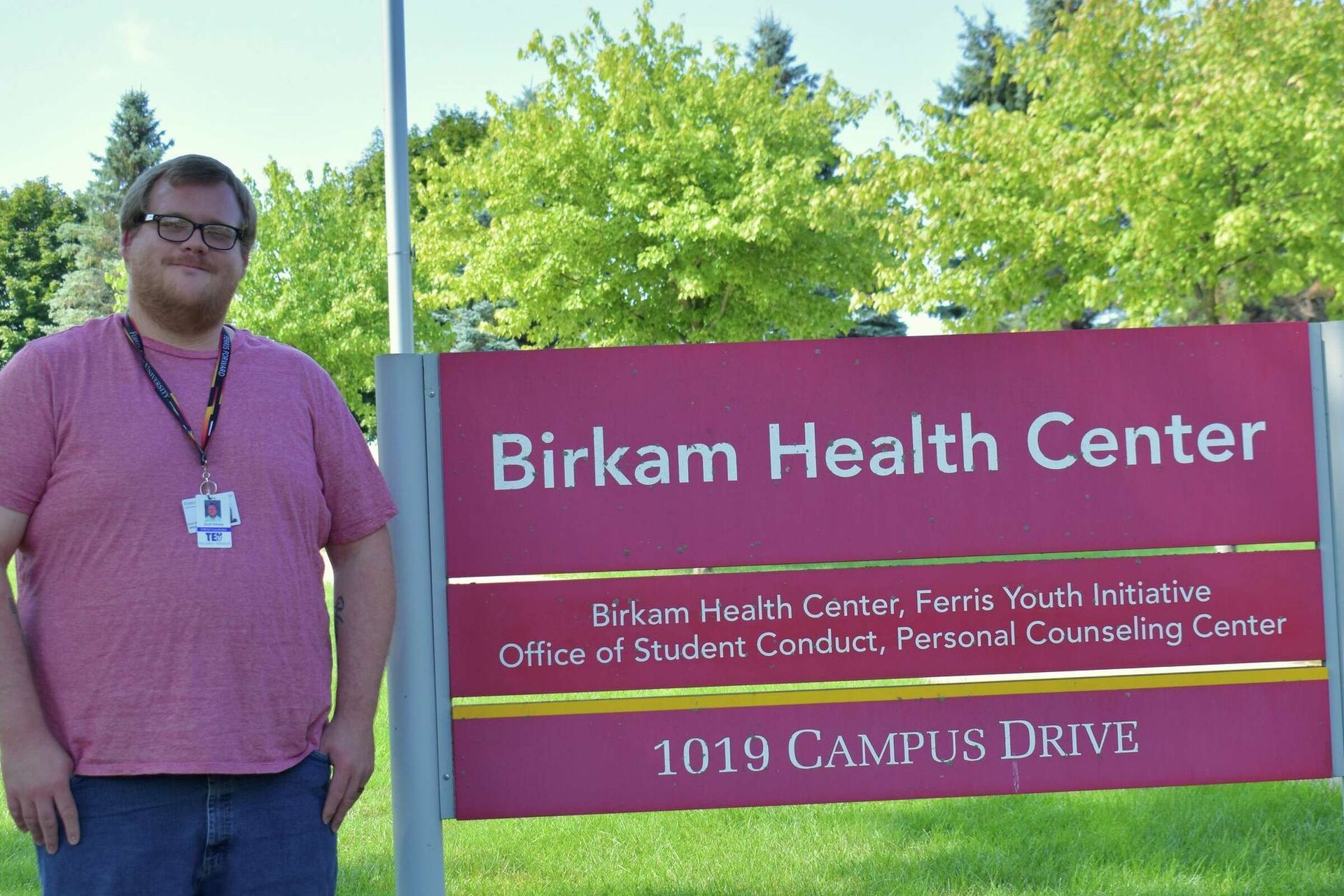
179 poisoning deaths due to opioids in April, the deadliest month on record

Alcohol deaths fell by 13.4% because of minimum unit pricing, the evaluation by Public Health Scotland suggested.

More people died in Alberta of a toxic drug overdose in April than in any single month on record, according to the most recent government data.

Letter from advocacy groups says illicit, unregulated drug supply is killing 20 Canadians a day, on average

By resolution 42/112 of 7 December 1987, the General Assembly decided to observe 26 June as the International Day against Drug Abuse and Illicit Trafficking (also known as World Drug Day) as an expression of its determination to strengthen action and cooperation to achieve the goal of an international society free of drug abuse.

Nearly 5% of cannabis users are at risk of developing an addiction to the drug, a new study from Statistics Canada says.
The analysis of data collected from more than 101,000 people aged 15 and older as part of the annual Canadian Community Health Survey showed that 4.7% of people who used cannabis in the past year were at risk of addiction.

Release of two new National Standards of Canada raise the bar for mental health, addictions and suicide prevention
Today, Health Standards Organization (HSO) released two new National Standards of Canada, focused on mental health and addictions services, and suicide prevention, that will raise the bar on ensuring high-quality care across Canada.

Senate committee urges Cannabis Act overhaul to address exclusion of First Nations
Committee chair says situation 'yet another example of how Indigenous Peoples are being let down by Canada'

B.C. couple in recovery helps end stigma around addiction
With more than 11,000 toxic drug-related deaths since B.C. declared a public health emergency in 2016, ending the stigma around addiction is a key part of trying to solve the crisis.

They had access to a safe supply as health-care workers. That's why they want the same for others
Corey Williams, 37, was an emergency room nurse for nine years. There, he encountered trauma and stress that, over time, took a toll on him.

UVic researchers hope to boost drug-checking access through automation
University of Victoria researchers are looking to enhance the role of technology in drug checking so more people in communities big and small can access the service as the illicit market’s toxicity continues to claim lives.

The UN High Commissioner for Human Rights Volker Türk has called on everyone to work together to build a more respectful and civil world, and for effective action to end hate speech, ahead of the
International Day for Countering Hate Speech on 18 June.

An innovative Niagara Health program that helps people with addictions is receiving international recognition through Accreditation Canada and the Health Standards Organization.

British Columbia says it is providing universal coverage for opioid agonist treatments that help people with substance use disorders, making it the first province in Canada to do so.

INNISFAIL - Chinook’s Edge School Division (CESD) schools will be equipped with nasal Naloxone kits starting in the 2023-24 school year, say officials.

‘It is a scientific fact that there is a link between alcohol and cancer, but we’ve had to fight to say that that is true’

The harm-reduction approach is highly politicized and has garnered recent attention both in the media and in the House of Commons.

My run-walk-run had been reduced to just-keep-inching-forward by the time Christine Piché caught me in the last two km of Ironman 70.3 Lanzarote last March.As overdose deaths climb, Glacier Media audits how much three levels of government have invested in harm reduction, prevention and treatment

The Red Deer Dream Centre (RDDC), an addiction recovery centre for men located in downtown Red Deer, will celebrate its Grand Opening this Friday, June 9, 2023.
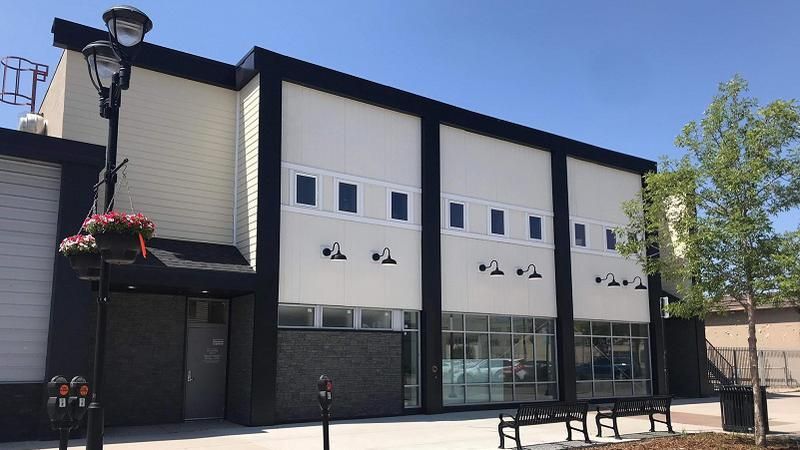
All ten provinces and three territories received a failing grade on meeting public health standards for alcohol policies, according to a research project evaluating suggested Canadian alcohol guidelines.

As overdose deaths climb, Glacier Media audits how much three levels of government have invested in harm reduction, prevention and treatment

'It’s not a matter of willpower; it’s a matter of life and death.'
Former Squamish resident Sacha Molby's son Tyrell Molby died from a lethal dose of fentanyl on Feb. 6, 2019.

With new breweries that are focusing only on products with no alcohol, established breweries that have launched entire lines, and neighbourhood breweries that are crafting small batches of it, non-alcoholic beer is everywhere.
But are they healthy?

B.C. doctor says 'safe supply' might be making addiction problem worse
A B.C. doctor is speaking out about the government's 'safe supply' program for drug addicts, saying he's seeing evidence it might actually be making the problem worse.
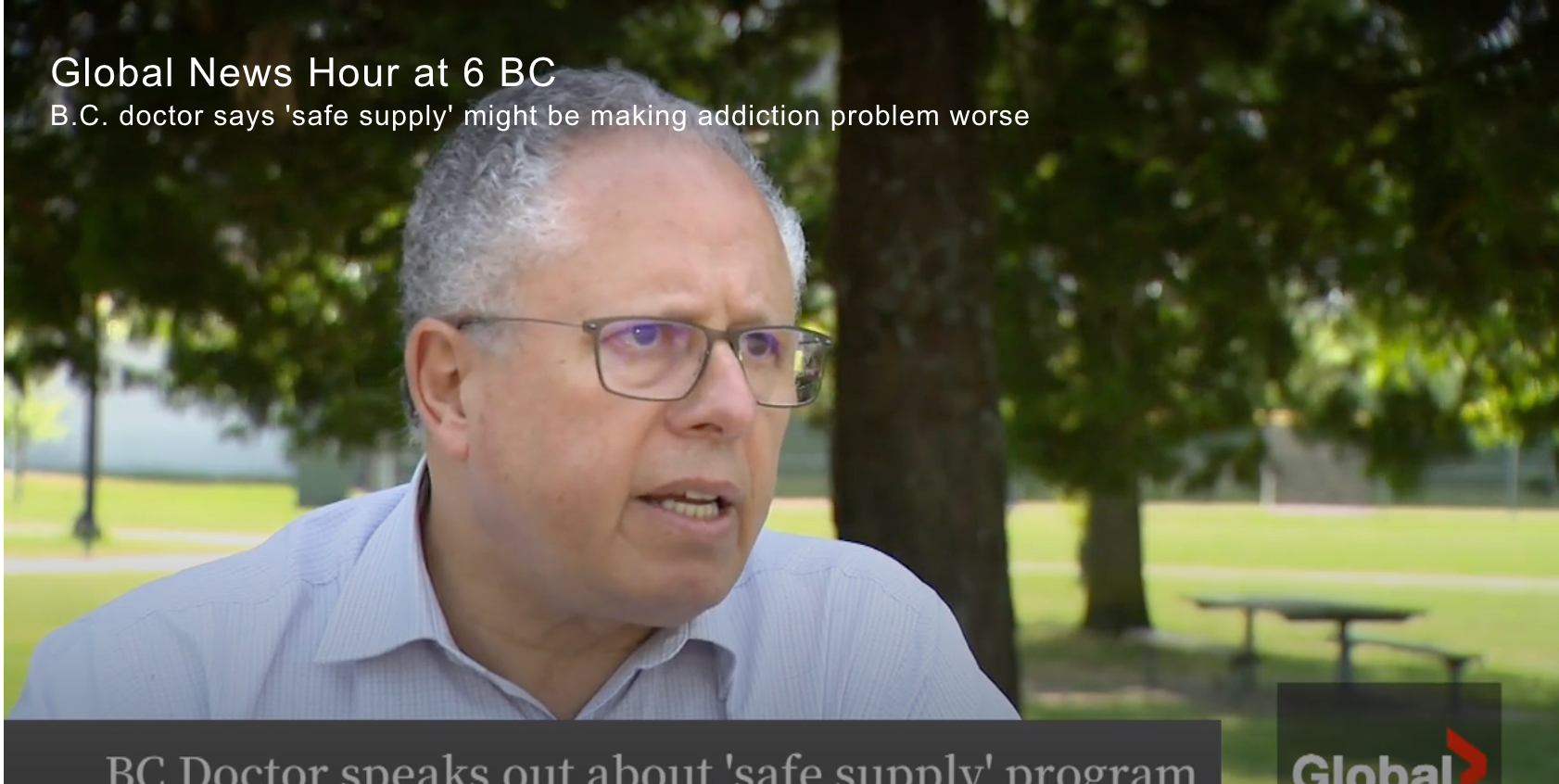
UCalgary Nursing students address on-campus alcohol consumption
A group of students from the NURS 289 course in the University of Calgary’s Faculty of Nursing, were tasked with addressing alcohol consumption on campus and finding ways to minimize the risk and consequences to first-year students living in residence.
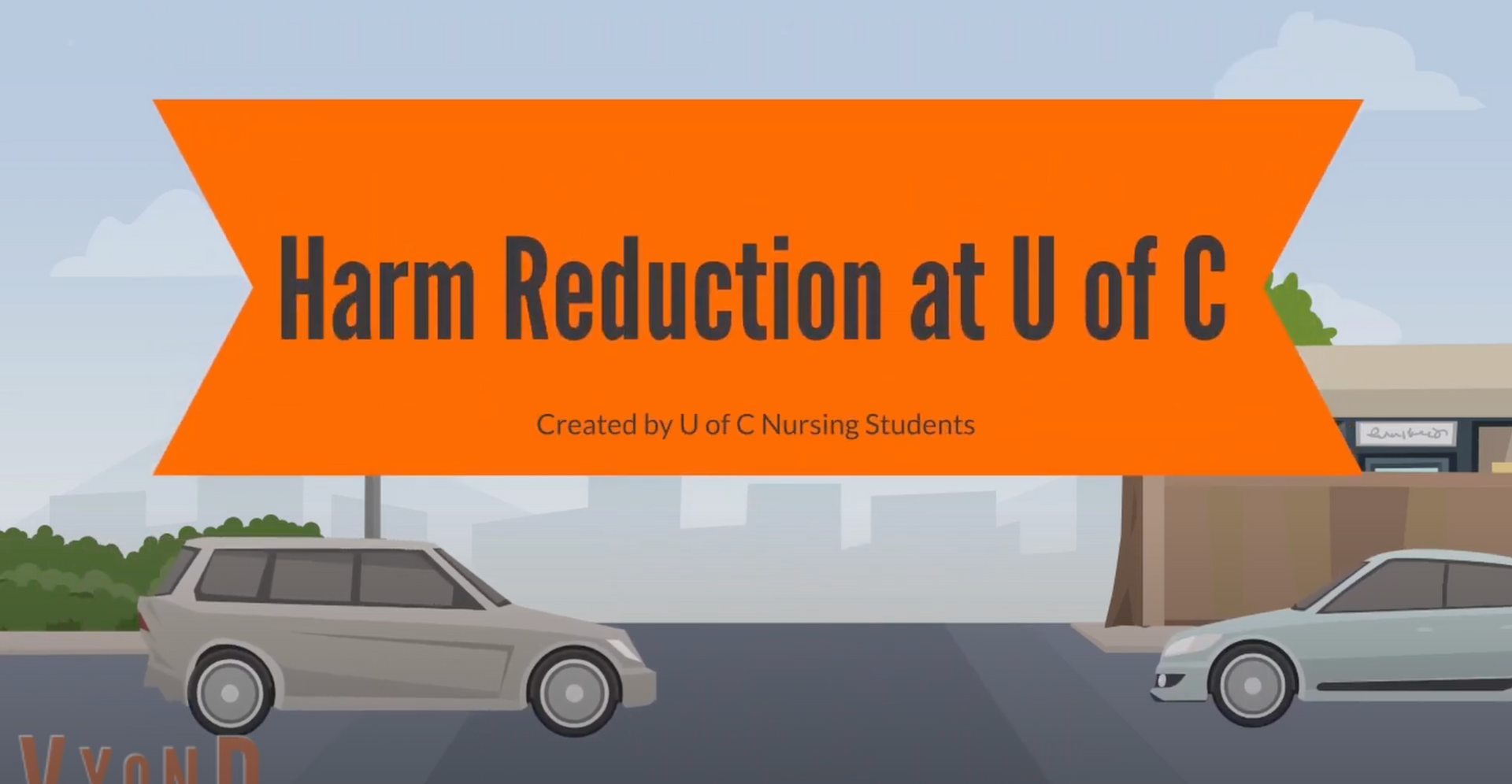
Canadian addictions expert headlines Waypoint’s annual Report to the Community on June 2
Save the date for Waypoint's annual Report to the Community on June 2. Please join the hospital’s board of directors and staff as they come together to celebrate accomplishments in mental health, addictions and specialized geriatric services, and for the first time in four years, it’s in person.
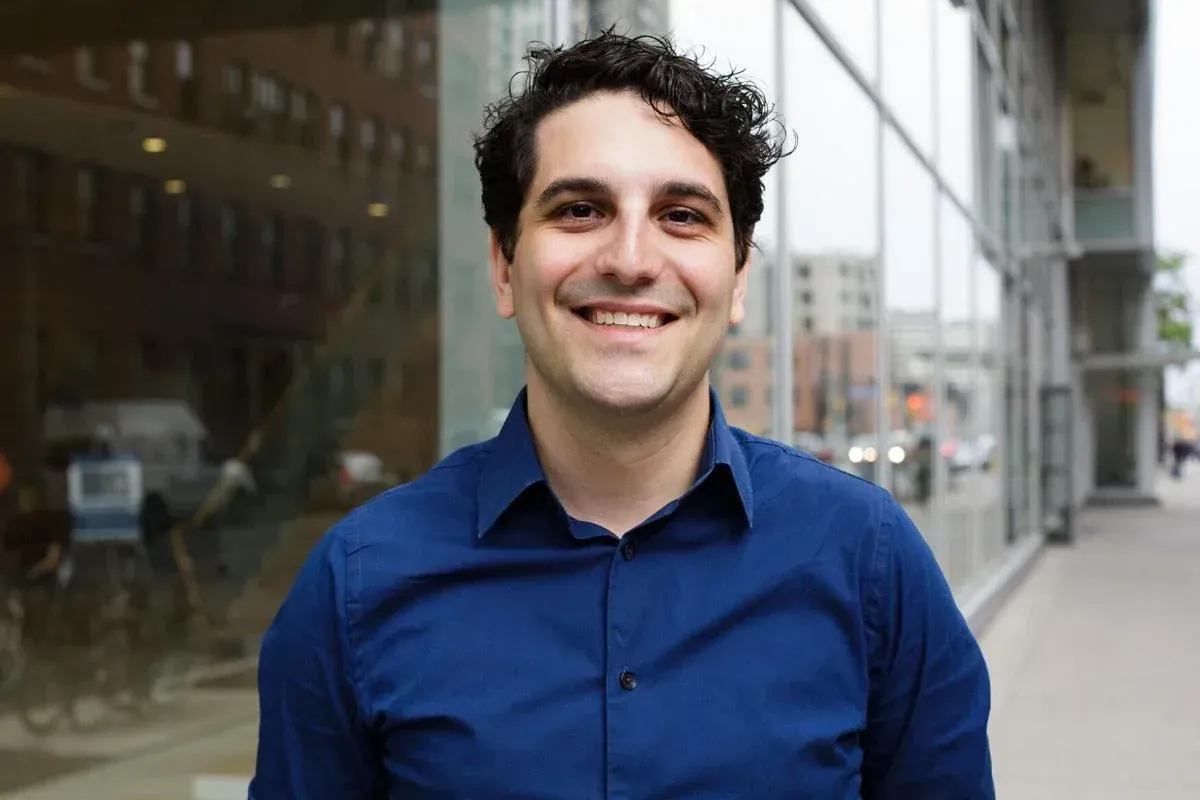
'Do whatever it takes' First Nations doctor has different way of thinking about addiction
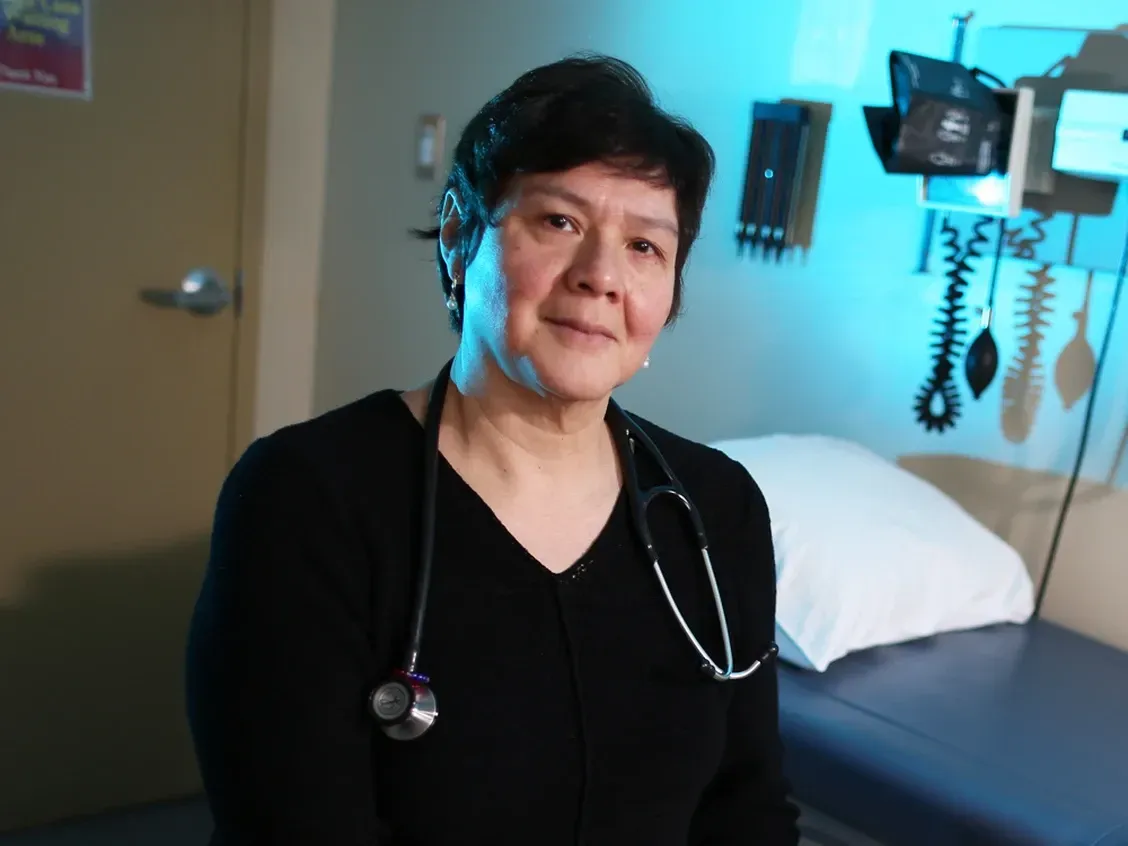
Canada's got a drinking problem — and one senator says Ottawa needs to step up
Three years sober, Sen. Patrick Brazeau is on a mission to curb alcohol abuse

Harms of safe drug supply program outweigh benefits: Addictions specialist
A London doctor at the centre of a national political debate over opioid programs says she had no intention of becoming a talking point for the federal Conservative party.
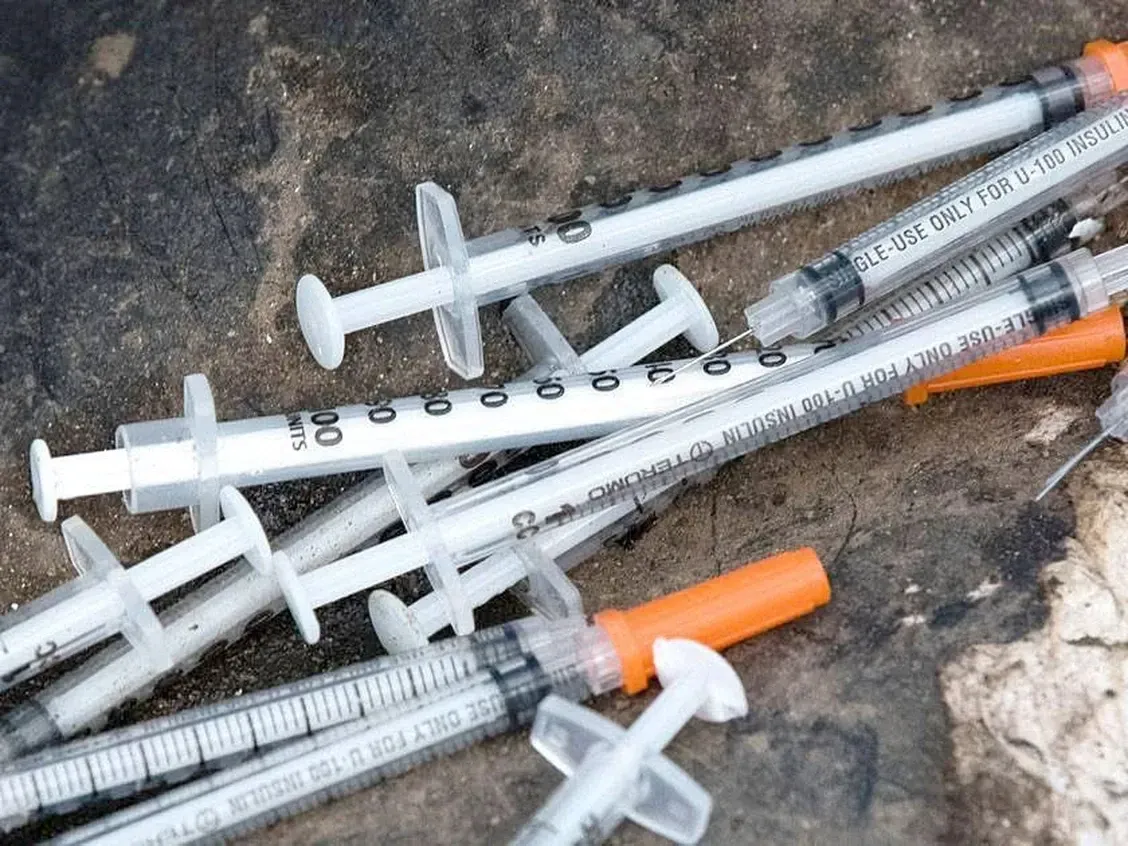
Cancer warning labels will go on alcohol bottles in Ireland — a world first

StFX Psychology Professor leads study to test effectiveness of alcohol warning labels
In January of 2023, when Health Canada came out with new alcohol guidelines that were a stark change from previous recommendations, it left some Canadians shocked.

UVic-led project offers steps to repair Canada’s failing alcohol policy
A University of Victoria-led project on Wednesday revealed worsening alcohol policy grades across the country and proposed detailed steps to get Canada back on track.
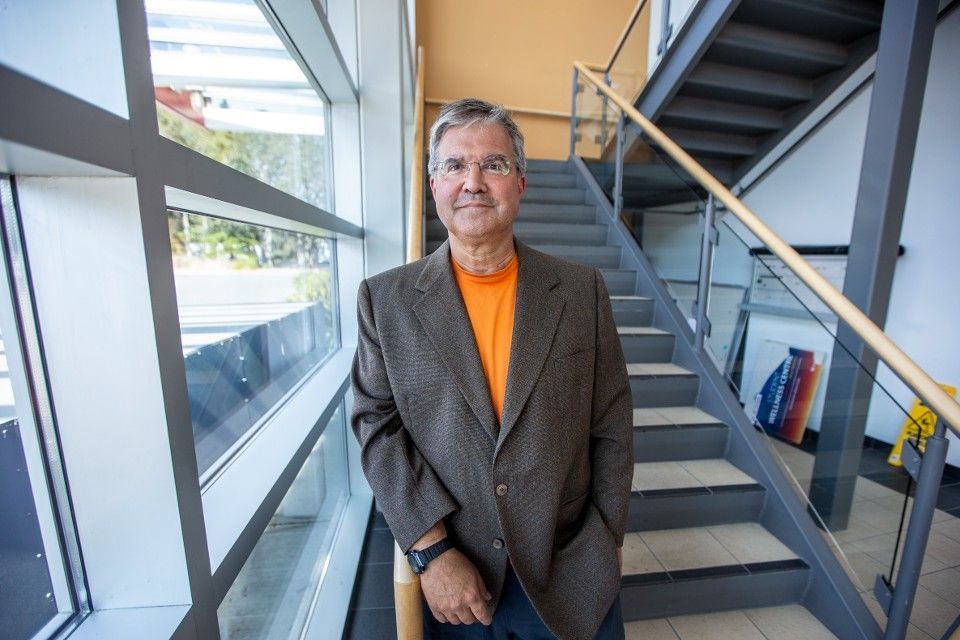
New national study finds adolescent vapers much likelier to use cannabis and binge drink
A new study of more than 50,000 US adolescents across the country indicates that vaping nicotine is strongly linked with an increased likelihood of high levels use of binge drinking and cannabis usage.

Remote work comes with daytime drug and drinking habits, study says
On any given work day, Ray wakes up, brews coffee, smokes a cigarette, and then “takes a hit of pot” before sitting down to morning Zoom meetings.

What you need to know about Adderall, the ADHD drug Elon Musk calls an 'anger amplifier'
The tech billionaire, who isn't a doctor, has said the ADHD medication Adderall is 'best used sparingly or not at all'

More than two alcoholic drinks a week increases cancer risk, scientists say
The mindset surrounding alcohol has changed rapidly. In the past, it was said that 10 to 15 drinks a week was the limit and in the past few months, that has changed to just two.

Changing College Drinking Culture with Dr. Victoria Burns
How can we make it easier for students and staff on college campuses to recover and rethink drinking and substance use? On the show Dr. Victoria Burns, PhD discusses how we can change campus drinking culture and make a safer place for everyone to recover out loud.

What Is "Sobersplaining"?
When others make themselves experts on your addiction and recovery.
Sobersplain (v) 1. To act as an authority on the subjects of addiction and recovery when a person has experienced neither. 2. To act as an authority on someone else’s sobriety just because a person is herself sober.

‘We know how to stop people dying from drug toxicity, can you please listen?’
In Revelstoke, two people died from poisoned drugs in the first months of 2023, bringing the total to 13 deaths since 2020
Nearly all workers with mental health, substance use disorder face stigma
Even receiving healthcare, 4 in 10 Canadians feel stigmatized: survey
Stigma continues to hound those suffering from mental health and substance use disorders, according to a report from the Mental Health Commission of Canada.

‘Bad batch’ of street drugs pushes opioid overdoses to record level in Calgary
Community outreach groups say an increasingly toxic drug supply renders naloxone less effective
Ontario invests $33M in mental health and addiction support for Indigenous communities
On Thursday, the provincial government announced $1 million in funding to address mental health and addiction issues towards First Nations.
Part 1: The Connection Between Substance Use Disorders and Mental Illness
Many individuals who develop substance use disorders (SUD) are also diagnosed with mental disorders, and vice versa. Although there are fewer studies on comorbidity among youth, research suggests that adolescents with substance use disorders also have high rates of co-occurring mental illness;

Substance Use and Co-Occurring Mental Disorders
Substance use disorder (SUD) is a treatable mental disorder that affects a person’s brain and behavior, leading to their inability to control their use of substances like legal or illegal drugs, alcohol, or medications. Symptoms can be moderate to severe, with addiction being the most severe form of SUD.
Evidence hasn't shown that psilocybin or other psychedelics work in small doses, says research psychologist
When Shannon Chiarenza needs to "dial down the stress" and sort through challenges in her life, she sometimes reaches for a microdose of psilocybin.
Canada, U.S. and Mexico looking to combat fentanyl overdose crisis together
Canada, the U.S. and Mexico are embarking on a new trilateral approach to combat the fentanyl overdose crisis. The three countries recognized fentanyl as the foremost drug threat in North America — and now they’re finding new ways to fight it, together.

Lethbridge Recovery Community set to open later this year
The Lethbridge Recovery Community (LRC) is getting closer to opening its doors.
An update on the facility’s development was provided on Friday, April 28, 2023, as officials anticipate the treatment centre will be operational in the next few months.
The truth is that statistics on male alcohol consumption are spotty at best (spottier still their consumption of alcohol free beverages). However, a few notable trends are starting to hint at a changing landscape of male alcohol consumption.
How alcohol consumption contributes to chronic pain
Scripps Research Institute
Chronic alcohol consumption may make people more sensitive to pain through two different molecular mechanisms -- one driven by alcohol intake and one by alcohol withdrawal. That is one new conclusion by scientists at Scripps Research on the complex links between alcohol and pain.

Youth tackle alcohol and drug abuse in their communities during NWT youth parliament
'I learned that these kids in other communities have the same problems as my community'
Nineteen students from across the Northwest Territories took to the floor of the N.W.T. Legislative Assembly this week to step into their MLA's shoes.
TEENAGE BINGE DRINKING MAKES THEM PRONE TO ALCOHOLISM
JUST A TEENAGE WASTED LAND –
Dr. Carbia, lead author of the study from the University College Cork in Ireland, said: “By focusing on young adults, at a crucial time of both brain and gut-immune development, we identified gut microbiome alterations linked to binge-drinking in young people.
Alberta commits $17M to address mental health and addiction in Edmonton
$6.3 million will add two full-time health care practitioners, two paramedics, two recovery coaches and 12 community safety officers at the Edmonton Police Service's downtown division
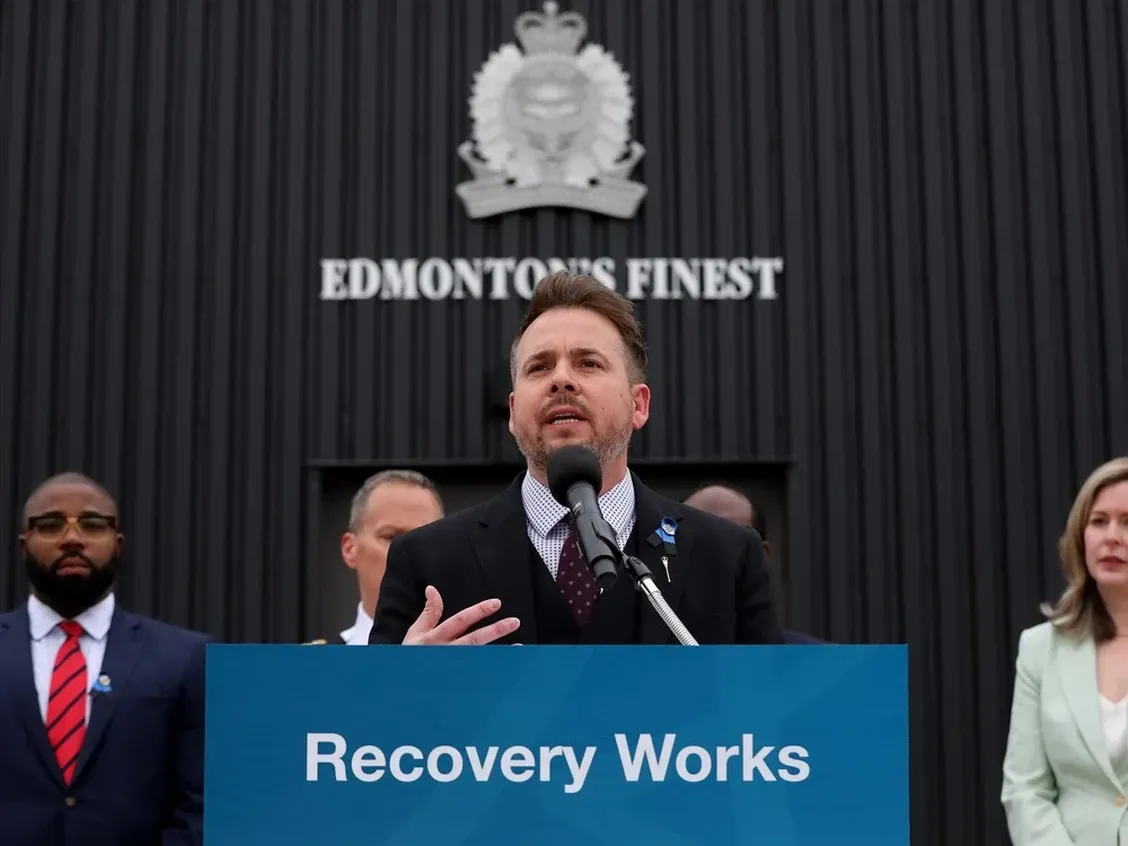
Uber Eats launching cannabis delivery in B.C.
British Columbians will soon be able to order legal cannabis straight to their doors through a delivery app.
Uber Eats and online cannabis retailer Leafly have partnered to launch the online cannabis delivery service, with the products coming from 13 local retailers in B.C.
How heavy alcohol consumption increases brain inflammation
Scripps Research Institute
For people with alcohol use disorder (AUD), there is a constant, vicious cycle between changes to the brain and changes to behavior. AUD can alter signaling pathways in the brain; in turn, those changes can exacerbate drinking.
Event to acknowledge ongoing toxic drug supply crisis held at Penticton Okanagan College
Ask Wellness and others are gathering at Okanagan College Penticton campus’s community hall to acknowledge this ongoing crisis on Friday, April 14 from noon to 3 p.m. This is the seventh anniversary of the B.C. public health emergency.
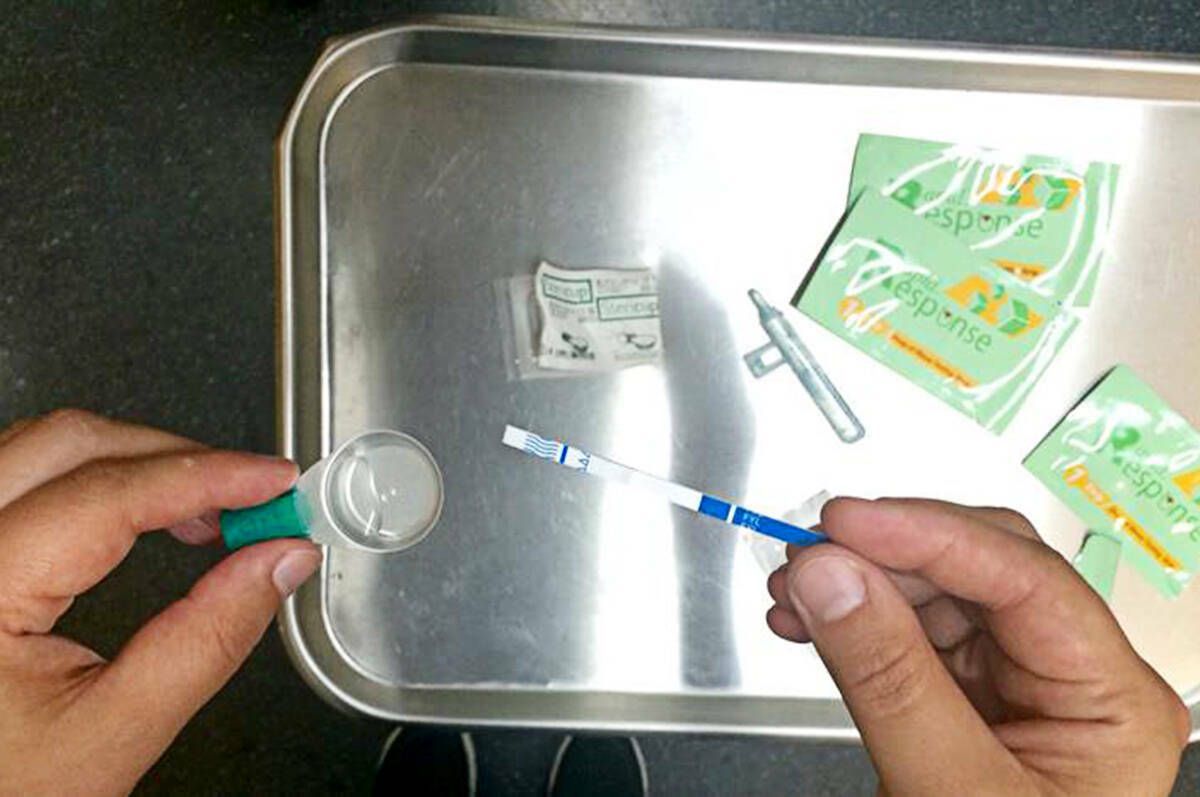
Collegiate Recovery Week
Article by Declan Murphy
Hi, my name is Declan Murphy, and I am a first year PhD student at Texas Tech University, and a member of the collegiate recovery program. I first heard about collegiate recovery programs last year while listening to a recovery podcast at home in Ireland.
ARHE Publishes Annual Impact Report
Releases Ethical Considerations and Revised Standards & Recommendations
While an annual report may not typically be considered “big news,” this year’s Impact Report includes the publication of two major documents that have been the focus of many hours of work over the last several years.
More than 1,600 Albertans died from drug-poisoning deaths in 2022: provincial data
According to the latest data released by the province, 146 Albertans died from drug-poisoning deaths in December 2022, bringing the year’s total to 1,630.
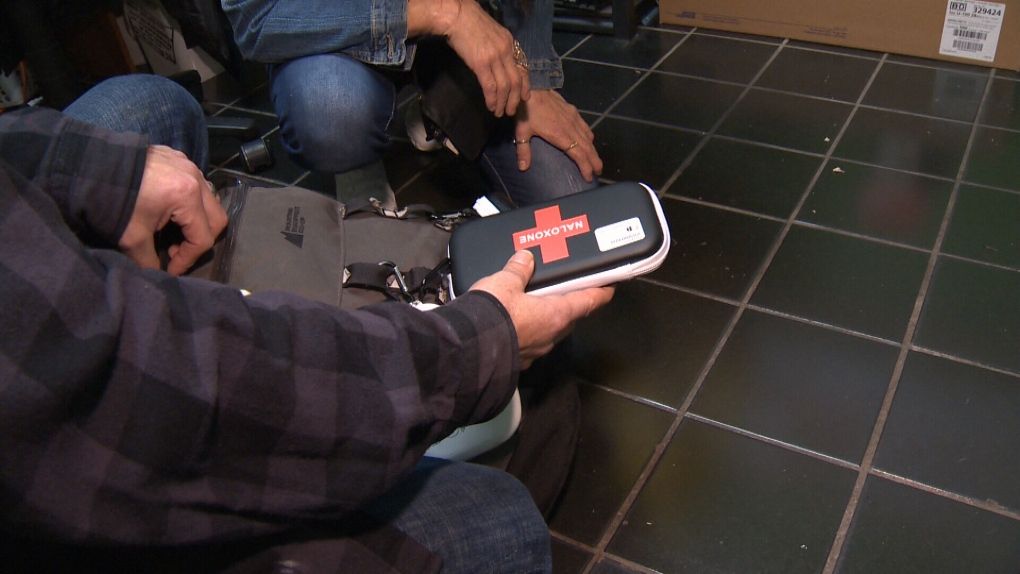
Counting the Cost of Substance Use — and Finding Solutions
Alcohol and tobacco are still doing the most harm, but toxic drugs are taking an increasing toll.
Government of Canada highlights $144 million from Budget 2023 that would help address harms related to substance use across Canada
The Government of Canada has recently highlighted $144 million from Budget 2023 that will help address the harms related to substance use across the country.
Youth Drug Education Program: The first of its kind in Canada
The Memorial University of Newfoundland (MUN), funded by the Canadian government and supported by the Canadian Centre on Substance Use and Addiction, has launched an ambitious youth drug education program.
Restaurants and bars brace for biggest alcohol tax jump in 40 years
Canada's restaurant industry is bracing for the biggest jump in the country's alcohol excise duty in more than 40 years, spurring warnings the tax hike could force some bars and restaurants out of business.
Everyone deserves the opportunity to pursue recovery
UCalgary Recovery Community is the Coordination Hub of Recovery on Campus. Supporting them is supporting us, donate now
LAND ACKNOWLEDGEMENT
We acknowledge the traditional territories of the people of the Treaty 7 region in Southern Alberta, which includes the Blackfoot Confederacy (the Siksika, Piikani, and Kainai First Nations), the Tsuut’ina First Nation, the Stoney Nakoda (the Chiniki, Bearspaw, and Wesley First Nations), and Métis Nation of Alberta, Region III.
